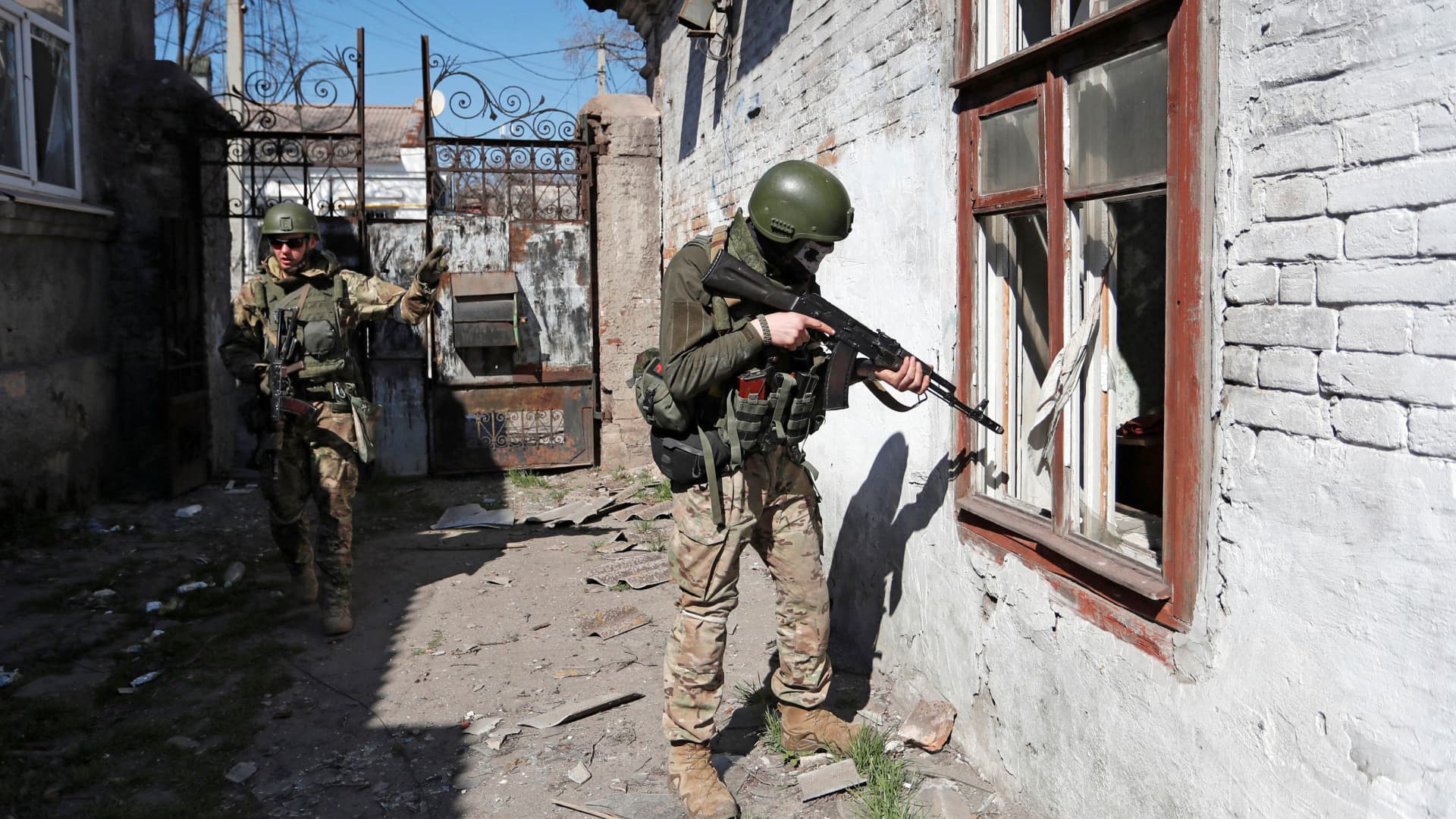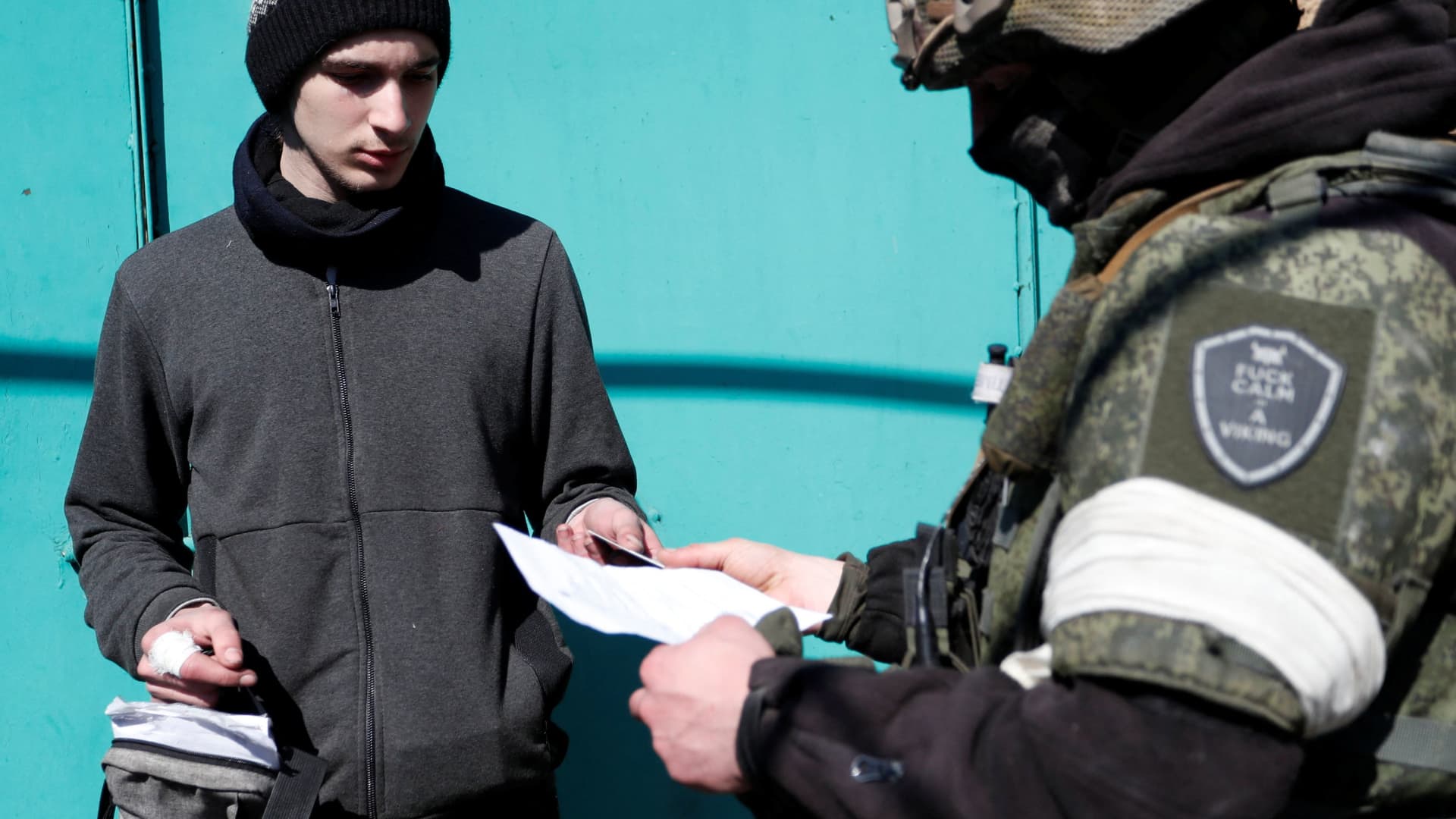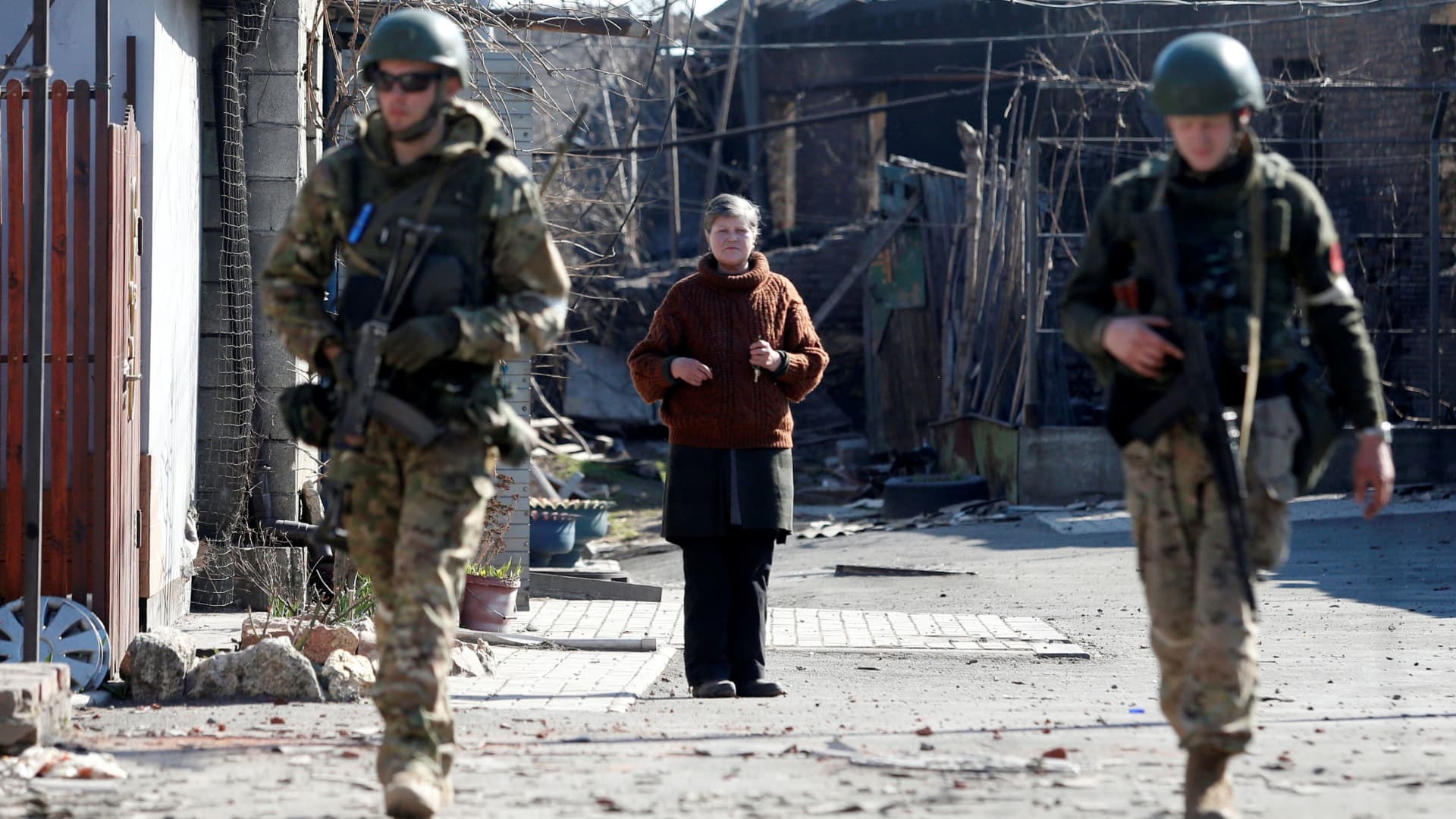
This has been CNBC's live blog covering updates on the war in Ukraine. [Follow the latest updates here.]
A rocket attack on a crowded train station in the eastern Ukrainian city of Kramatorsk has killed at least 50 people and injured more than 80, local authorities said. Thousands of civilians have been waiting at train stations in the country's east to evacuate as Russian strikes intensify. Moscow denied being behind the strike, and denies targeting civilians despite well-documented evidence to the contrary.
WATCH ANYTIME FOR FREE
>Stream NBC10 Boston news for free, 24/7, wherever you are. |
Russian troops in Ukraine's north have withdrawn and at least some of them will be transferred to the eastern Donbas region, the U.K.'s Defense Ministry said Friday.
Ukrainian leaders have warned that the fighting in the Donbas, where Russia has been engaged in military operations for years, is expected to be brutal and resemble the battles of World War II. Authorities have urged civilians in Ukraine's east to evacuate while they still can.
Get updates on what's happening in Boston to your inbox. Sign up for our >News Headlines newsletter.
Meanwhile, NATO says it would warmly welcome Finland to the alliance should it apply. Kremlin spokesperson Dmitry Peskov also admitted in an interview with Sky News that Russia had suffered "significant losses" of its troops.
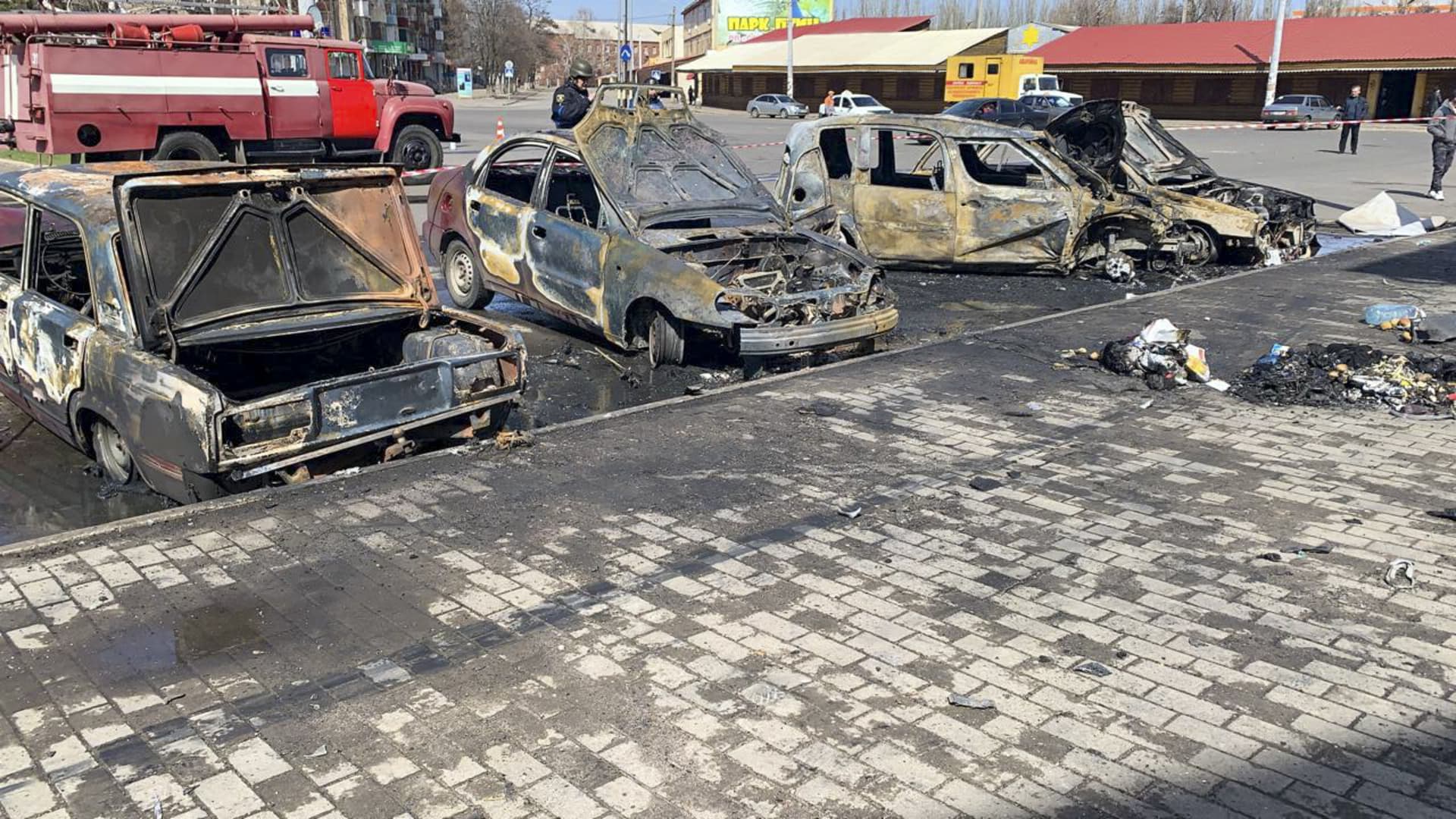
Money Report
Pentagon official says fighting in eastern Ukraine could be a 'knife fight'
Despite major losses, Russia still has a lot of manpower and that could drag on the conflict for a long time, a senior U.S. Defense official said.
"This will be a knife fight," the official said. "This could be very bloody and very ugly."
After failing to capture capital city Kyiv, Moscow is refocusing its efforts on eastern Ukraine, where Russia and Ukraine have fought for eight years.
"The Russians are limiting their geographic aims, but they still have a lot of combat power available. This could go on for a long time," the official said.
The official also said some of the Russian units that attacked Kyiv were "severely mauled."
"We've seen indications of some units that are literally ... eradicated — there's just nothing left at the BTG except a handful of troops and maybe a small number of vehicles," the official said.
Military developments in Ukraine remain difficult or impossible to confirm as the situation on the ground changes rapidly.
— Christine Wang
Ukrainians search for bodies in the devastation of Borodyanka
Ukrainian firefighters and volunteer rescue workers search for bodies in the rubble of a collapsed building in the town of Borodyanka, northwest of Kyiv.
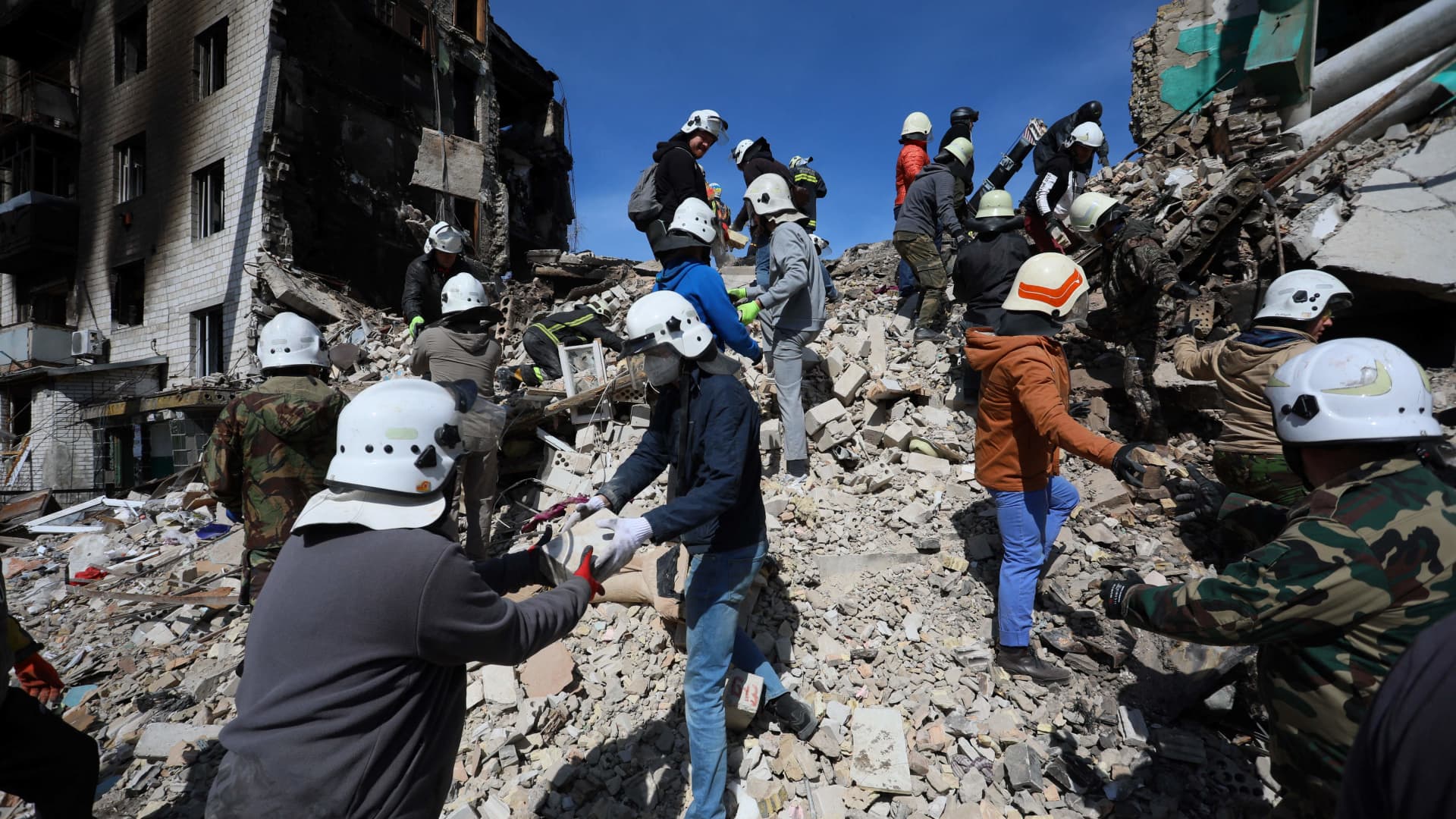
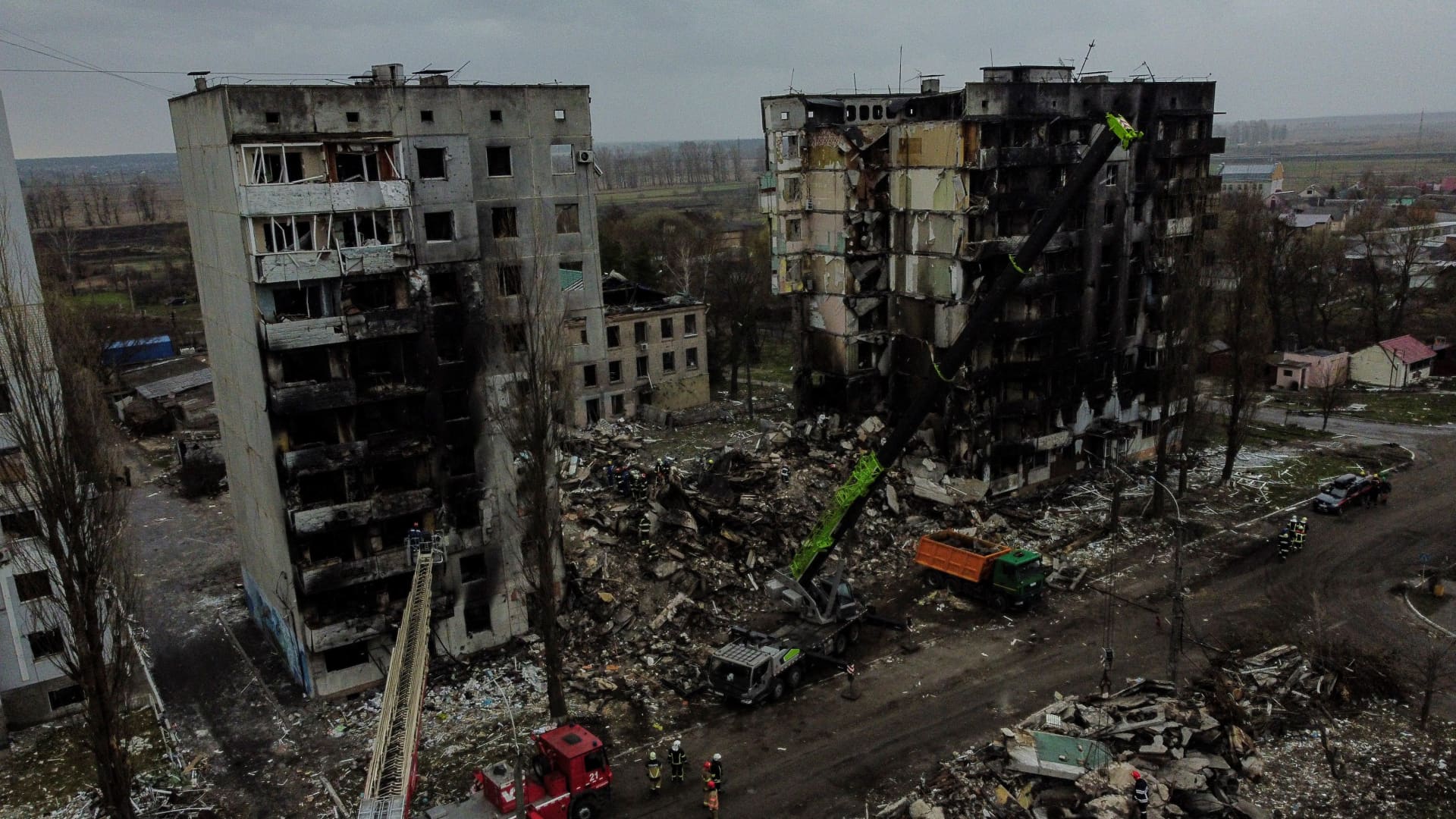
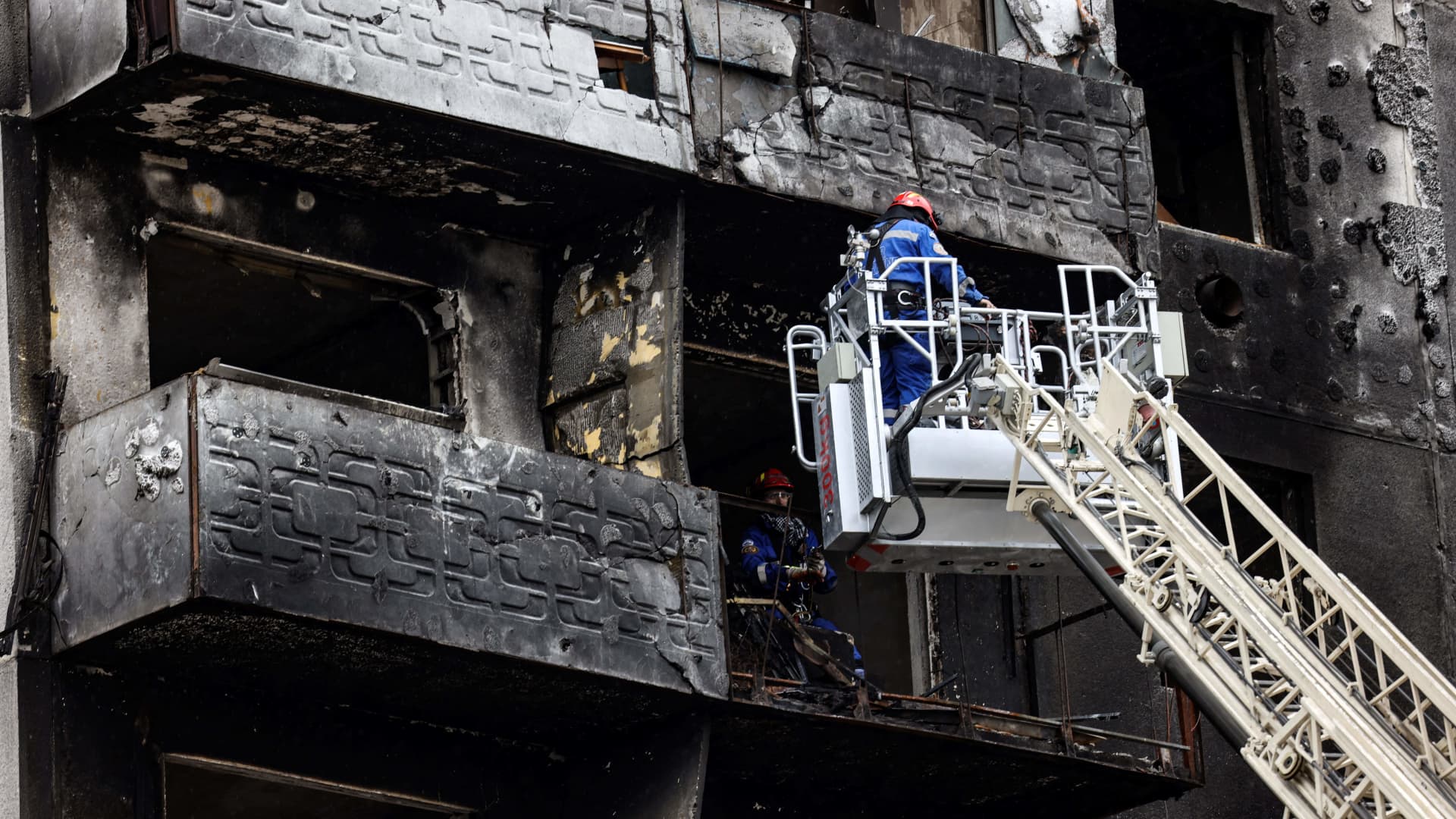
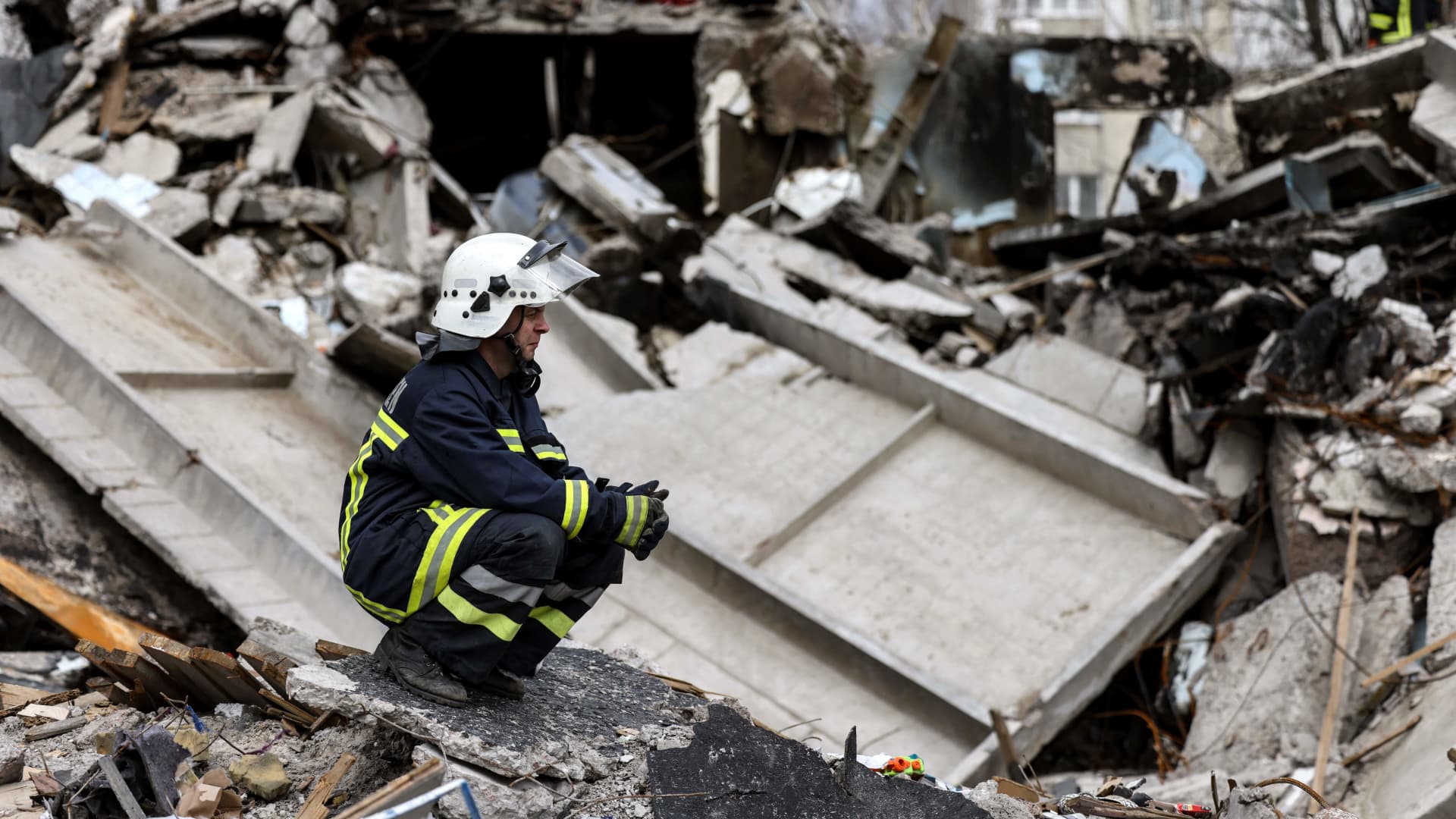
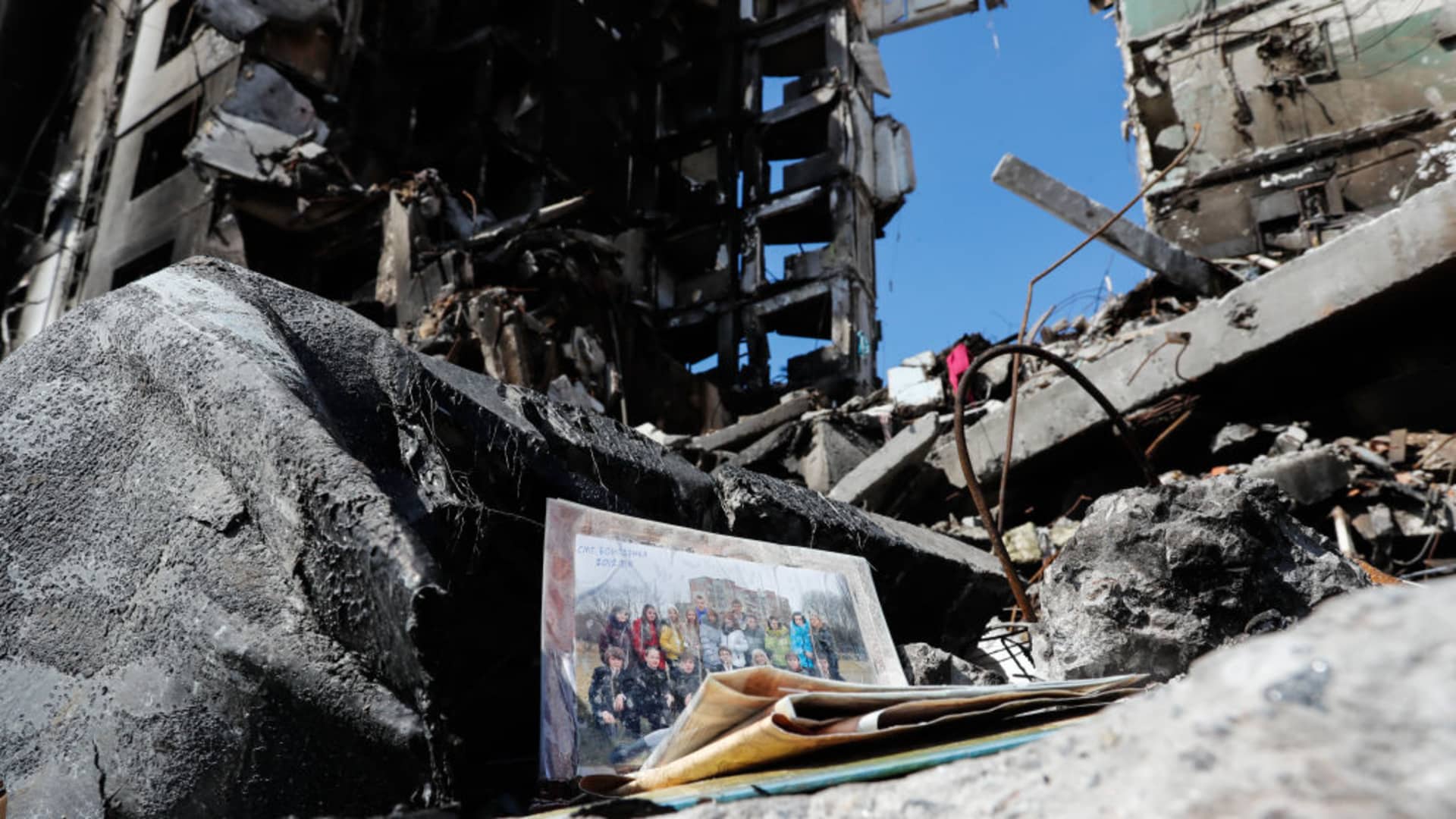
— Getty Images
Cayman Islands says it has frozen $7.3 billion in sanctioned Russians' assets
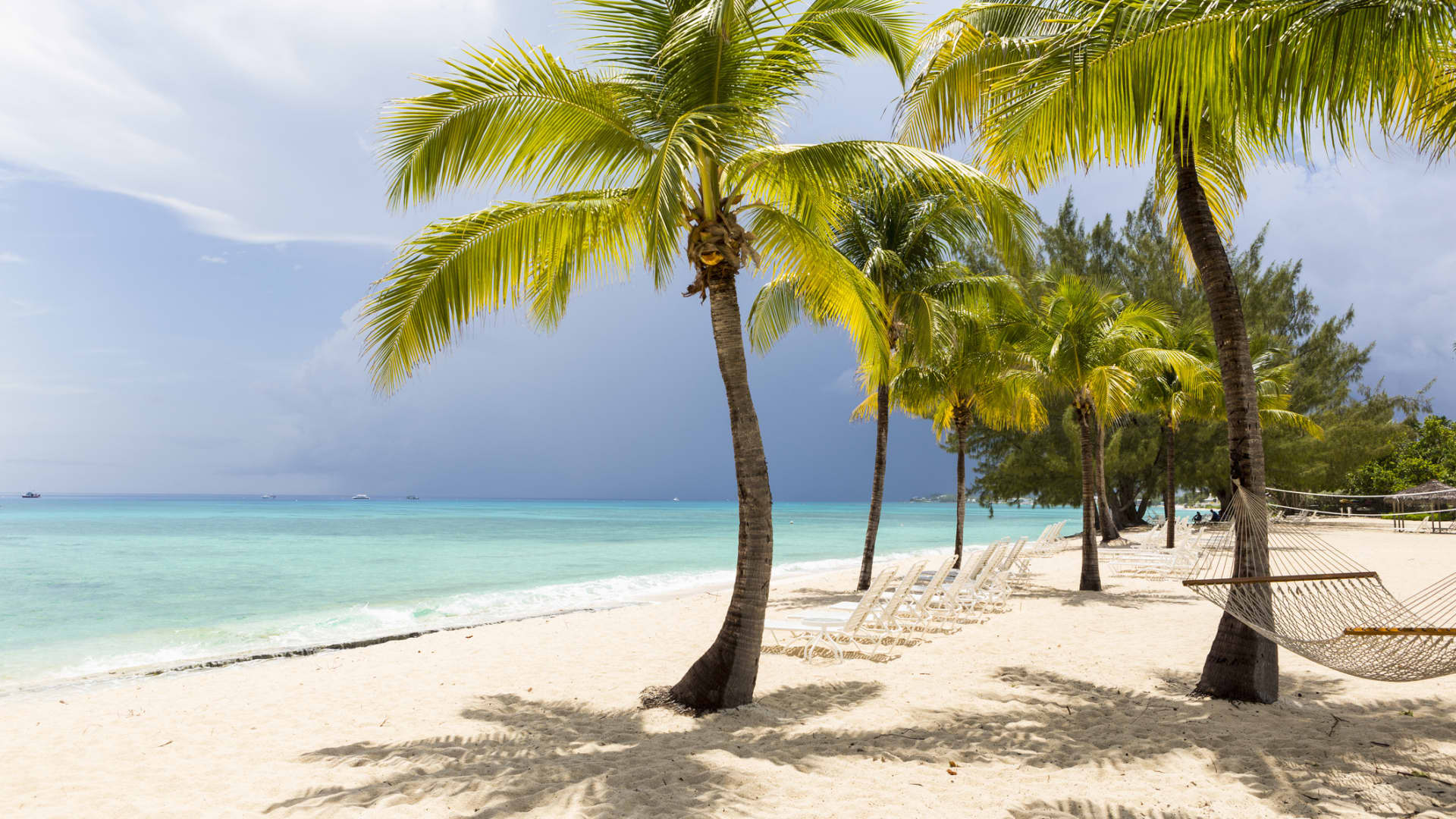
The government of the Cayman Islands announced that it has frozen approximately $7.3 billion worth of assets belonging to more than 800 sanctioned Russian oligarchs and entities since Moscow invaded Ukraine on Feb. 24.
The Caribbean island chain is an overseas British territory, so banks and regulators follow the same sanctions directives they would in the United Kingdom. The Caymans are also one of the world's most popular tax havens, drawing thousands of wealthy individuals who employ complex corporate structures to avoid taxes back home.
$7.3 billion is a startling amount for a country with fewer than 65,000 residents. By comparison, the global financial powerhouse of Switzerland announced this week that it has frozen only slightly more than the Caymans, approximately $8 billion since the start of the war.
Cayman Premier G. Wayne Panton said the asset freezes highlight that the islands are "responsible and reputable" participants in the global economy.
— Christina Wilkie
E.U. imposes new sanctions on 216 Russians, including Putin's daughters
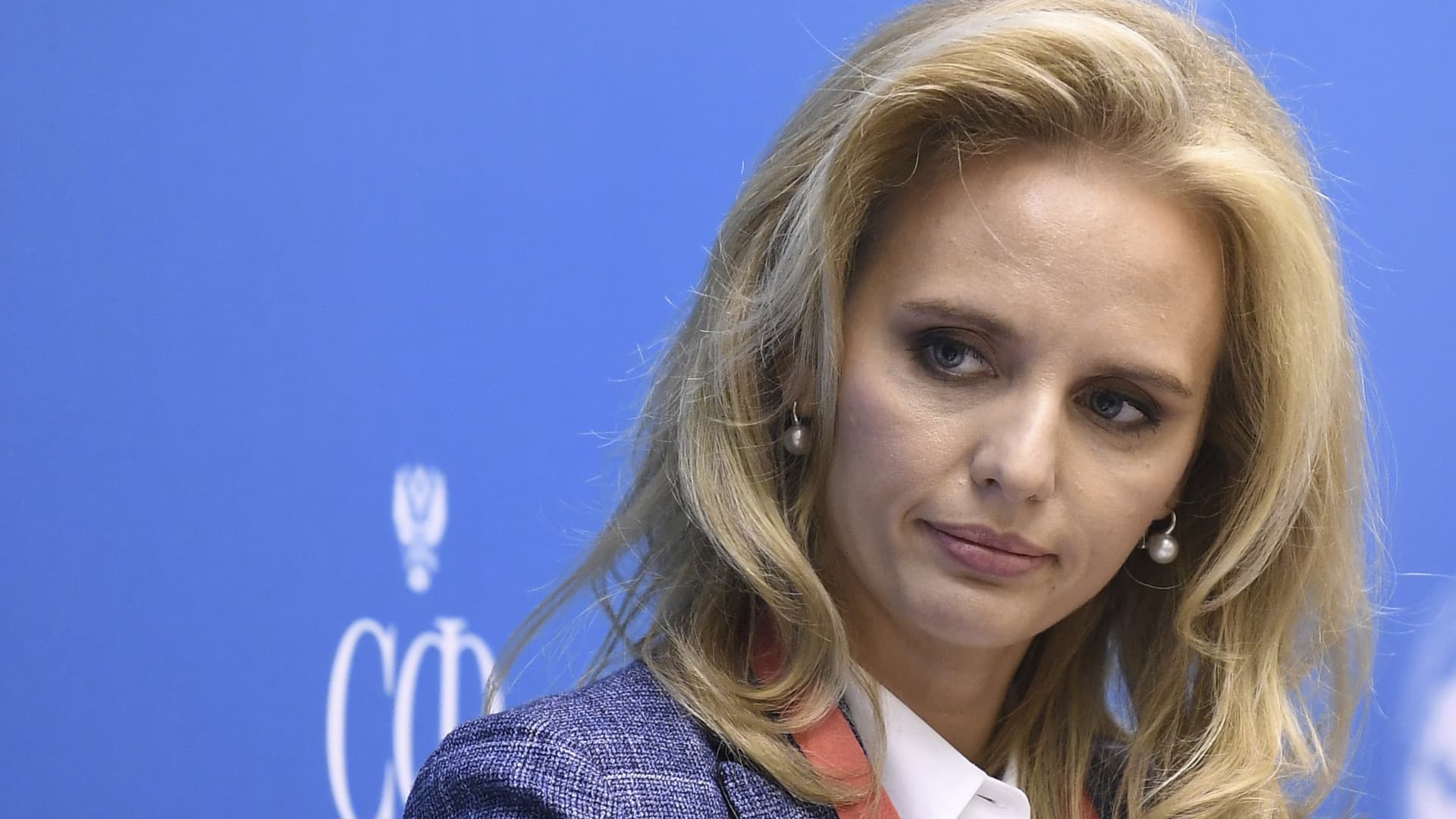
The European Union on Friday announced a sweeping new slate of individual sanctions targeting 216 Russian nationals and 18 entities. They include two of the adult daughters of Russian President Vladimir Putin, as well as the aluminum magnate Oleg Deripaska and Herman Gref, the CEO of Sberbank, Russia's largest lending bank.
Katerina Tikhonova and Mariya Putina (above), who are in their 30s, are rarely seen in public and almost never mentioned by their father.
The sanctions are part of a broader package of restrictions announced by the European bloc that includes a ban on imports of Russian coal set to take effect in August. This is the first time the EU has placed an embargo on Russian energy products, a controversial decision in a region that is highly dependent upon Russian oil, coal and gas.
Additionally, the EU imposed full blocking sanctions on four major Russian banks that together represent 23% of the Russian banking sector: VTB Bank, Sovcombank, Novikombank and Otkritie Bank (formerly known as NOMOS Bank).
Finally, the new sanctions bar Russian-flagged maritime vessels from docking in EU member state ports, although it includes a carveout for energy and agricultural shipments.
E.U. officials said the latest round of sanctions came in response to growing evidence of scores of atrocities committed by Russian soldiers against Ukrainian civilians, including rape, torture and execution-style killings.
— Christina Wilkie
U.S. and Polish Army troops train in joint tactical session
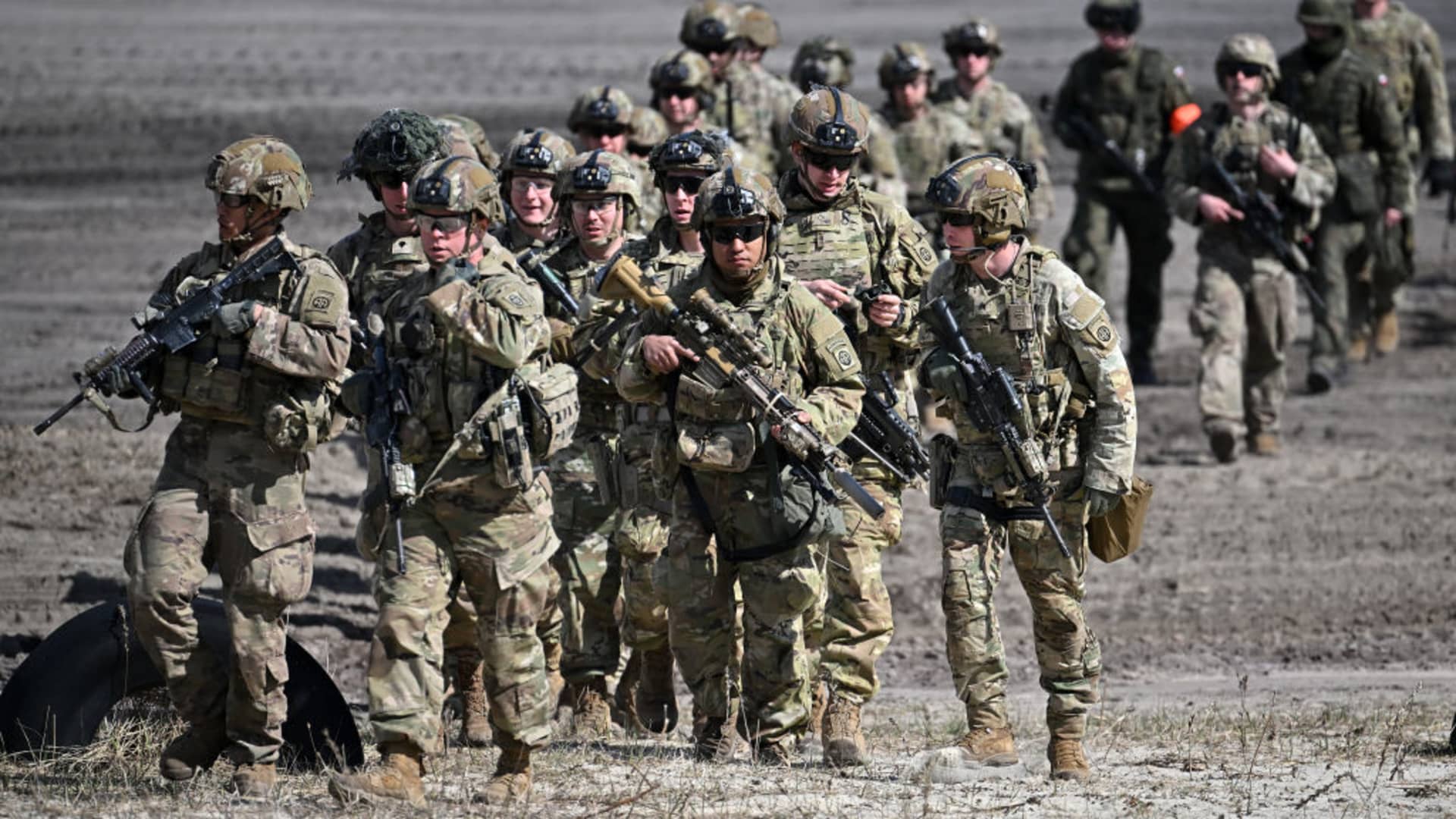
Troops from the Polish 18th Mechanized Division and the U.S. Army's 82nd Airborne Division take part in tactical and fire training in Nowa Deba, Poland.
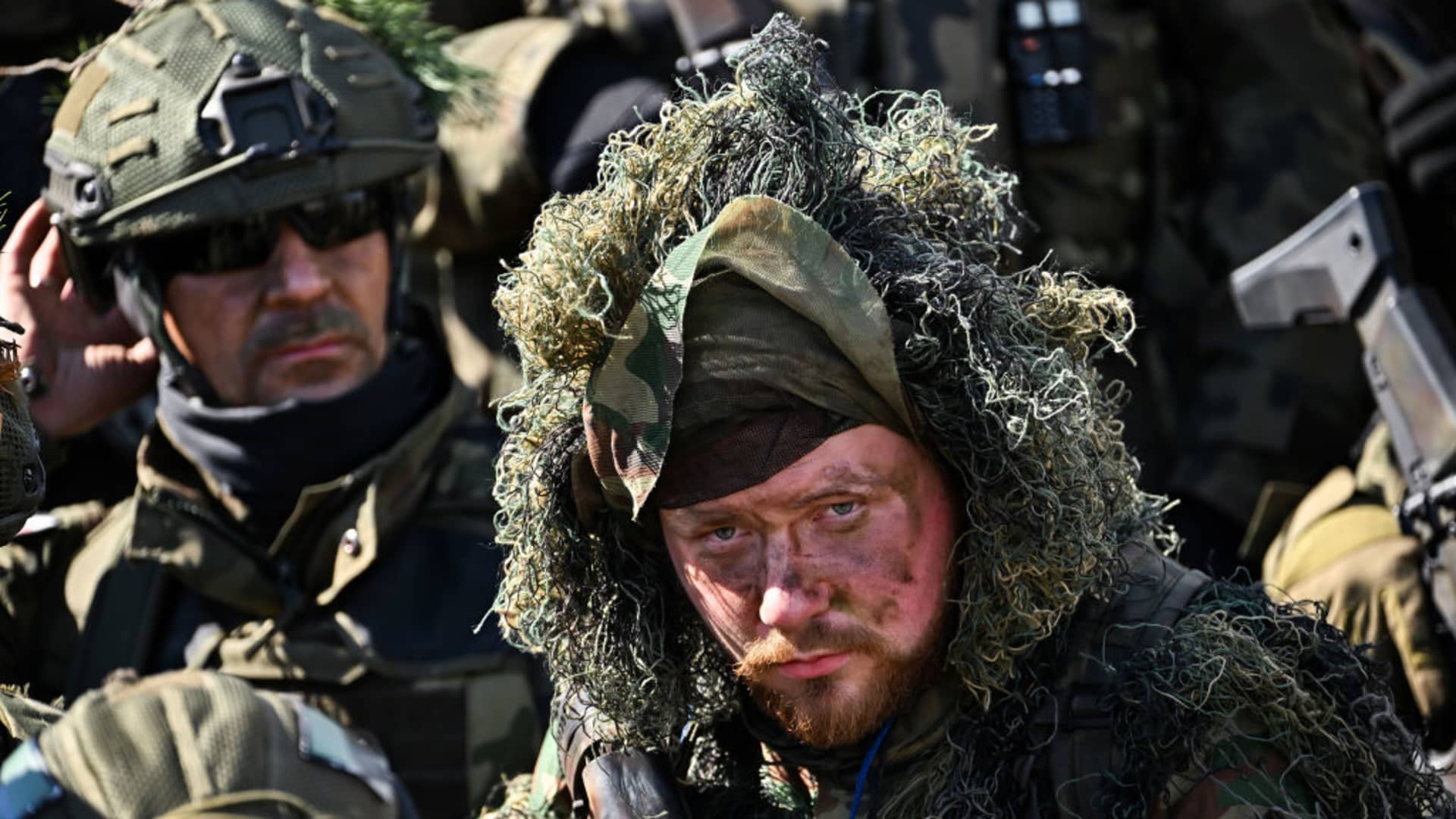
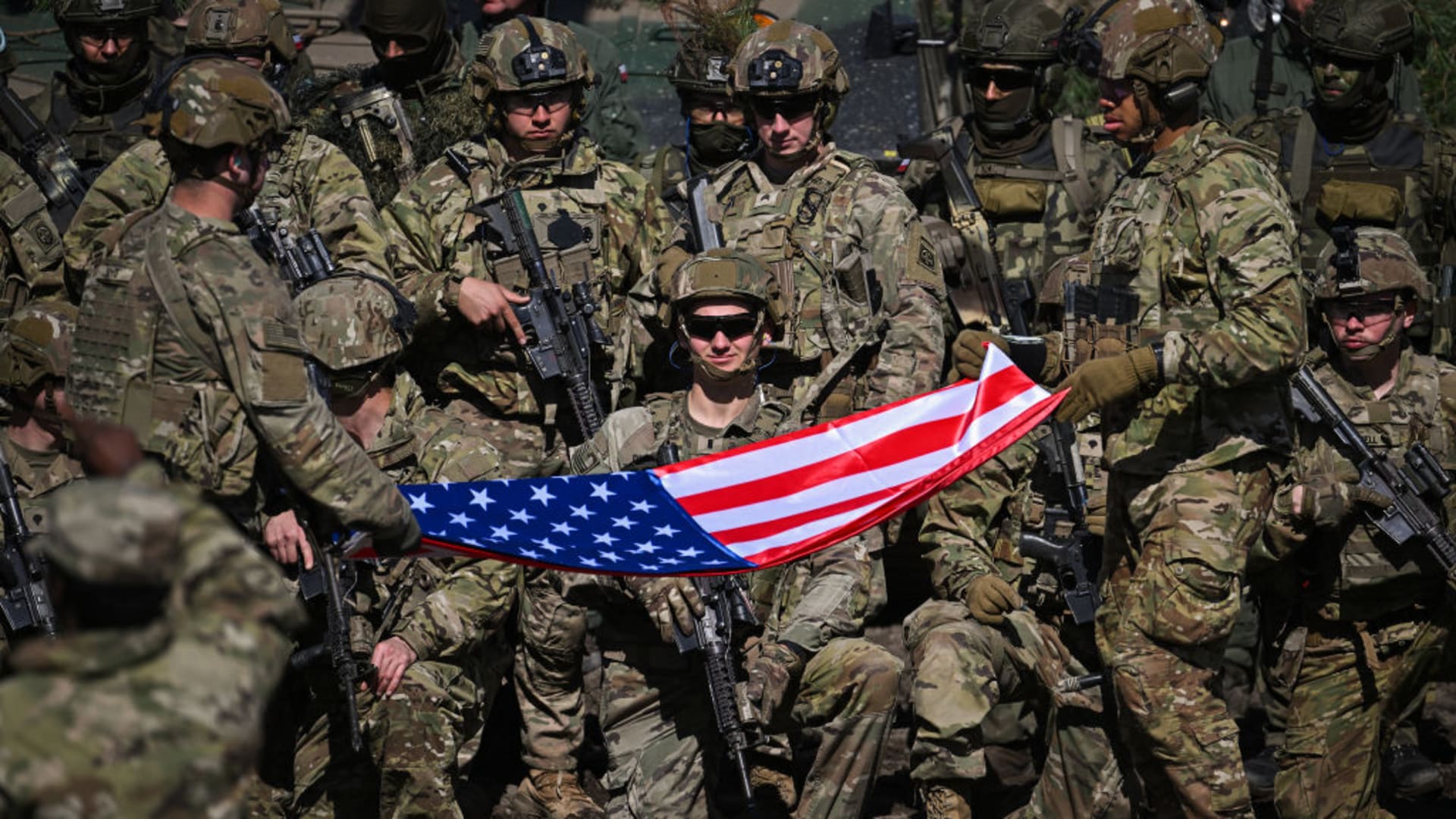
The tactical and fire training for U.S. and Polish units is meant to increase their ability to operate together.
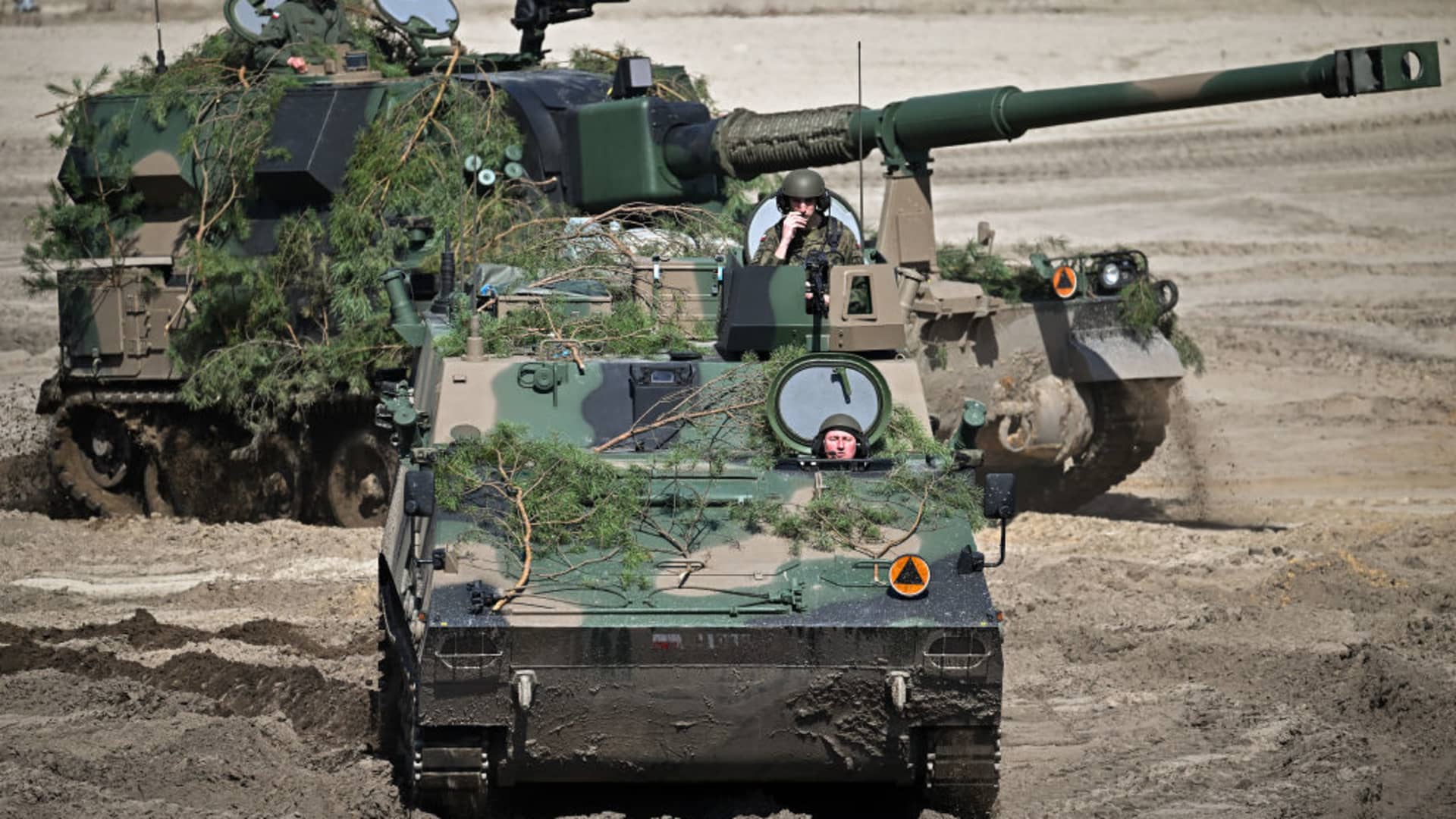
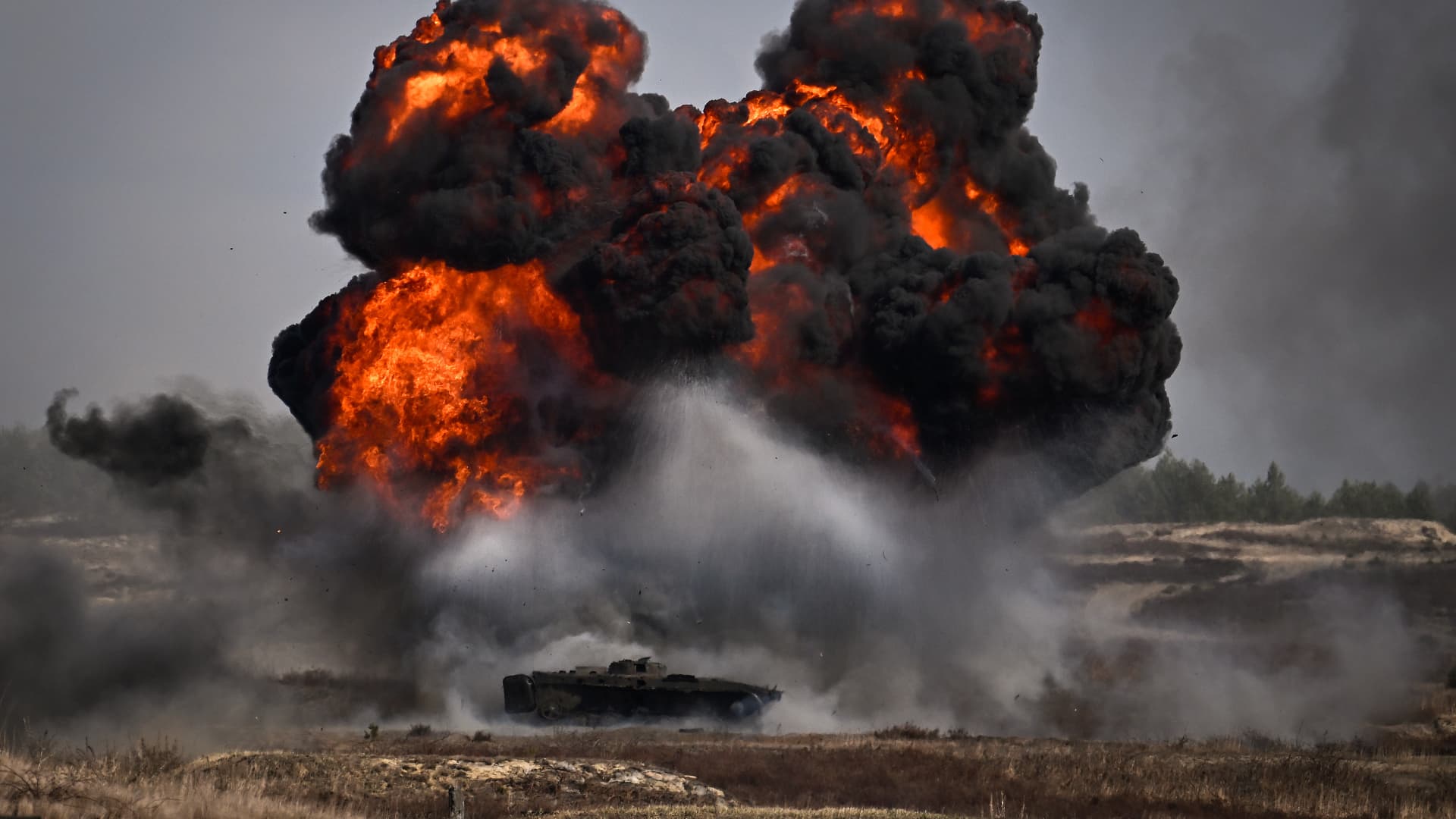
The training will include shooting from Pioruns (man-portable air-defense systems) and Javelins (anti-tank guided missiles), known for their effectiveness in combating Russian troops in Ukraine.
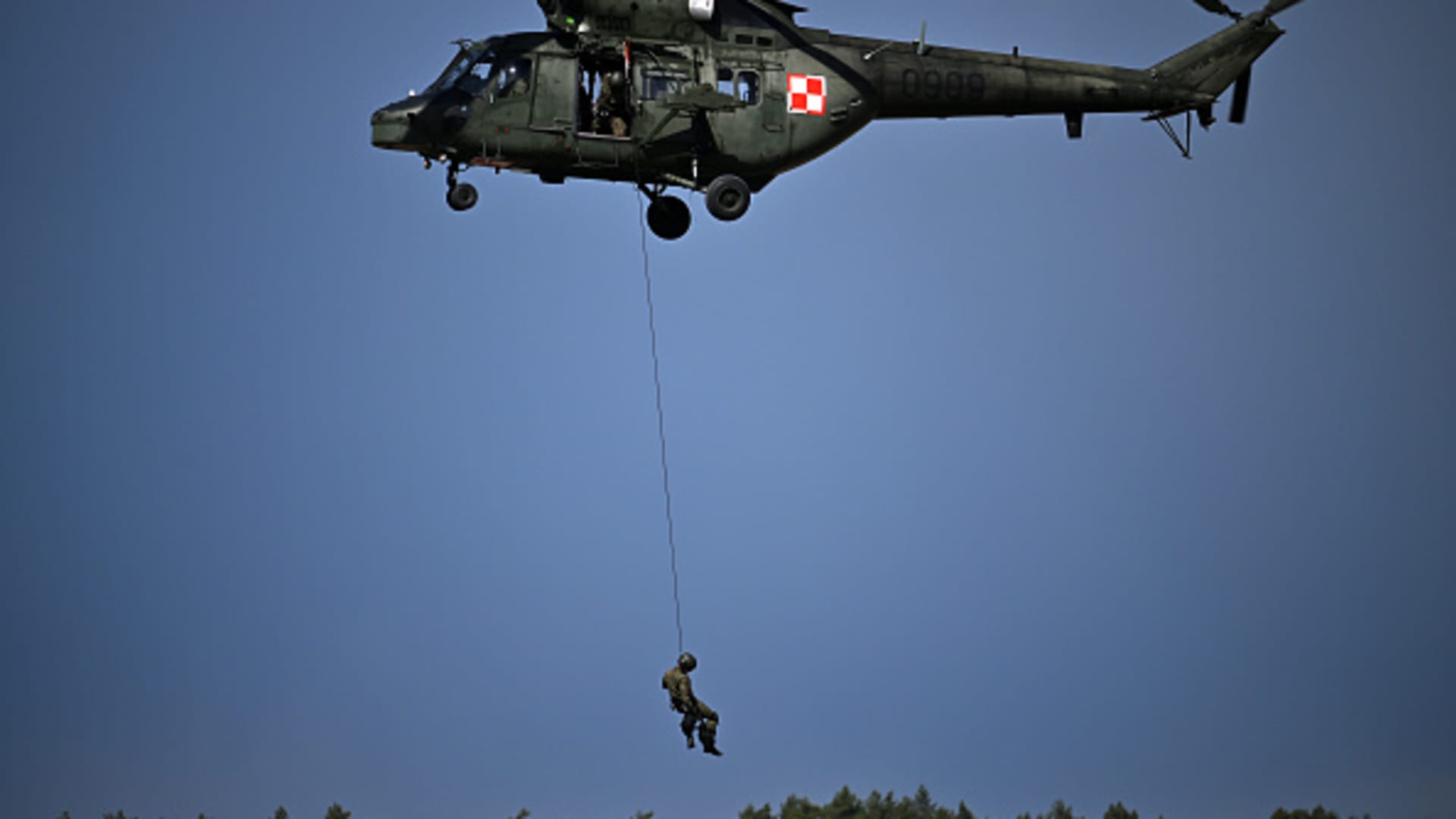
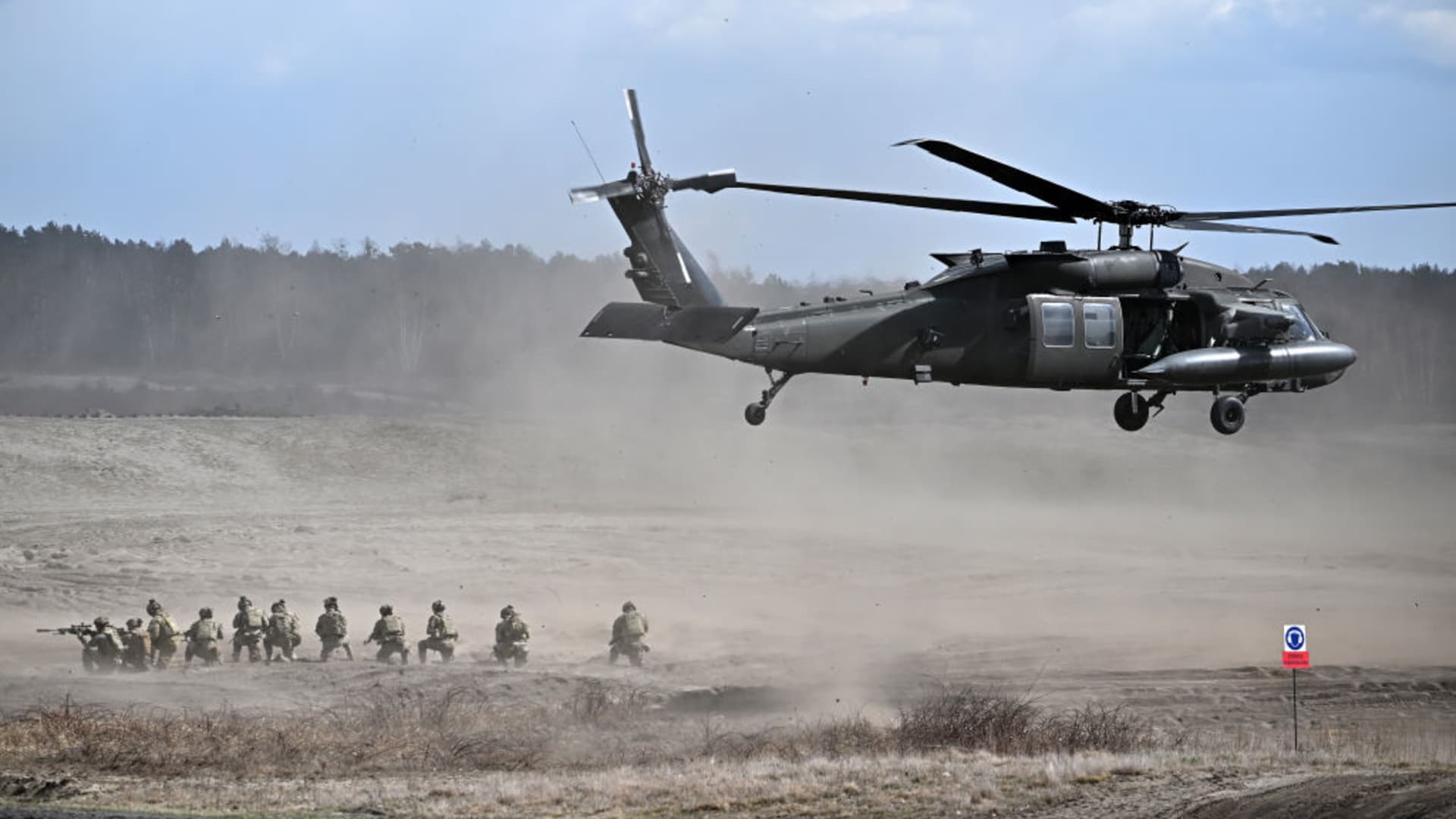
— Getty Images
Missile attack on Kramatorsk train station was Russian short-range missile, U.S. Defense official says
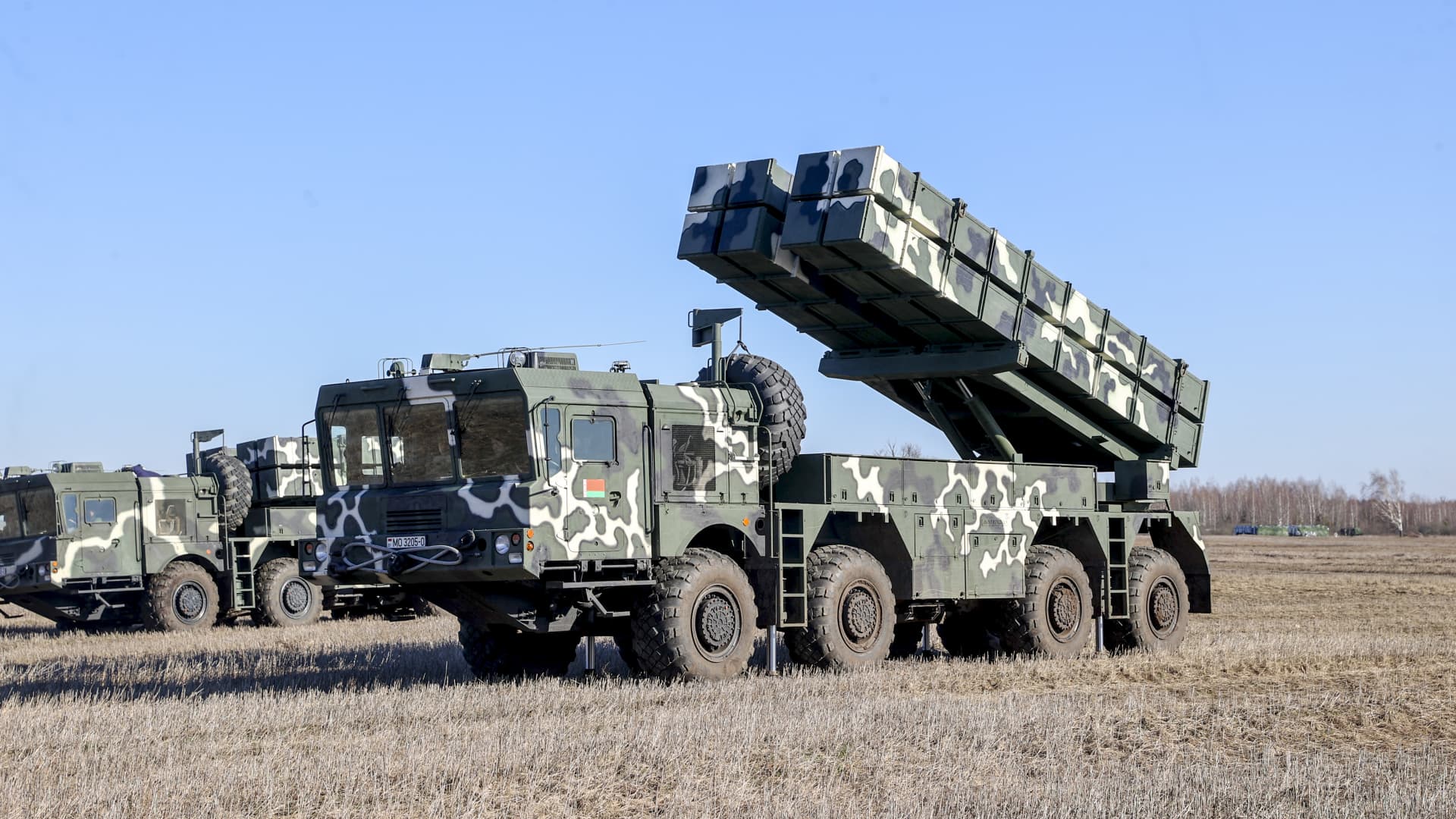
The devastating attack on the Kramatorsk railway station in eastern Ukraine was carried out by a Russian short-range ballistic missile fired from inside Ukraine, a senior U.S. Defense official said.
The strike killed dozens of people as civilians wait at train stations to flee the eastern part of the country.
The U.S. official, who spoke on the condition of anonymity in order to share new details the Pentagon has gathered about the war, added that the U.S. believes the missile was a Russian OTR-21 Tochka, also known as an SS-21 "Scarab" missile. The SS-21 is a Russian-made mobile, short-range, single-warhead ballistic missile with a warhead payload of about 1,000 pounds.
The U.S. military has observed more than 1,500 Russian missile launches since the start of the war, according to the official. Russia has focused in particular on the coastal city of Mariupol.
Following the attack on the Kramatorsk train station, the Pentagon announced that it would reposition a Patriot missile battery in Slovakia to bolster air defense systems.
— Amanda Macias
EU chief promises speeded up process for Ukraine to seek membership
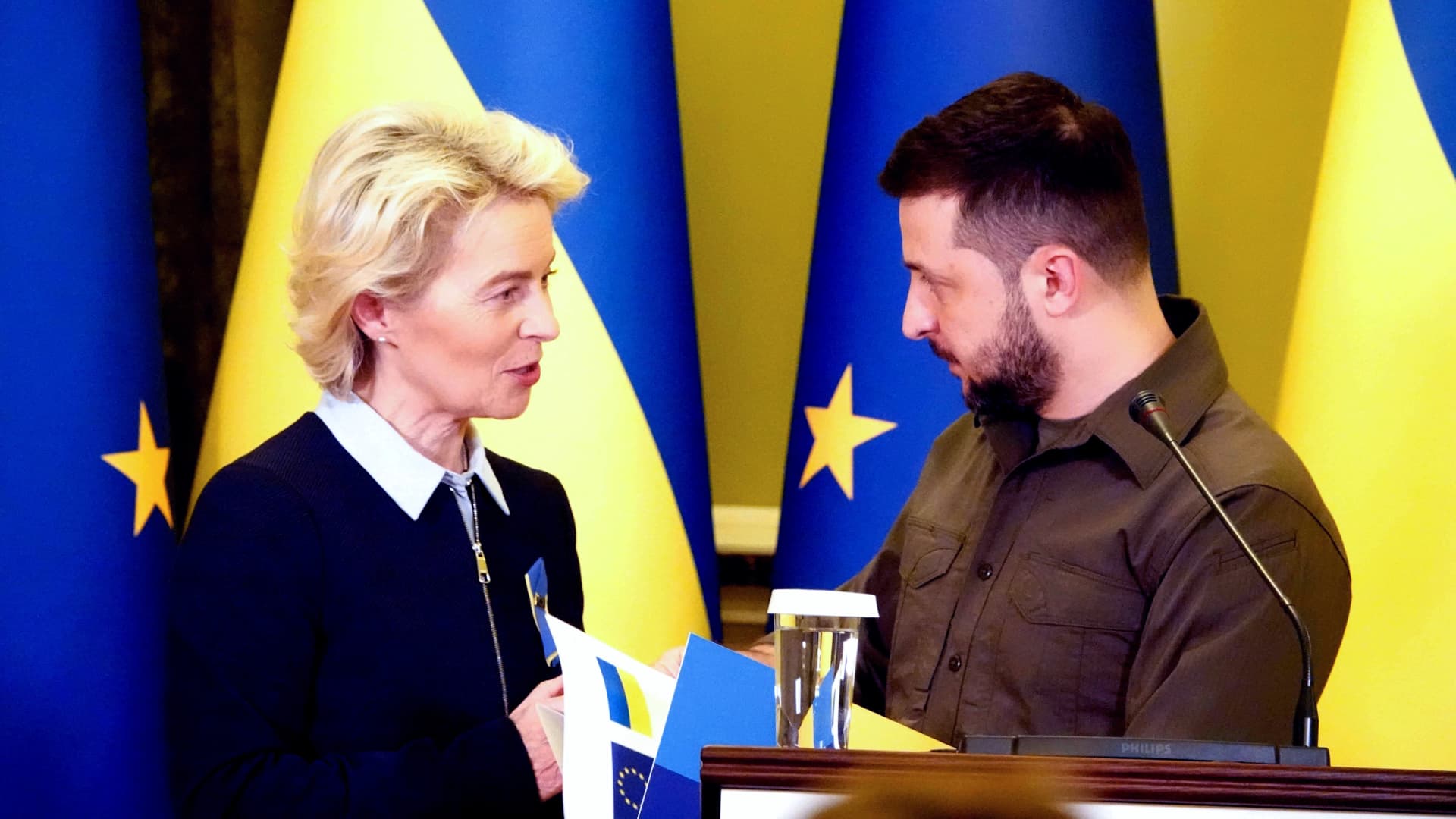
European Commission President Ursula von der Leyen pledged to offer Ukrainian President Volodymyr Zelenskyy a speedier start to Ukraine's bid to become a member of the European Union.
Handing Zelenskyy a questionnaire which will form a starting point for the EU to decide on membership for Kyiv, she said: "It will not as usual be a matter of years to form this opinion but I think a matter of weeks." Zelenskyy said he would come back with answers in a week.
She underlined the sanctions put on Russia over its invasion of Ukraine, saying: "Russia will descend into economic, financial and technological decay, while Ukraine is marching towards the European future, this is what I see."
— Reuters
U.S. sending Patriot missile system to Slovakia
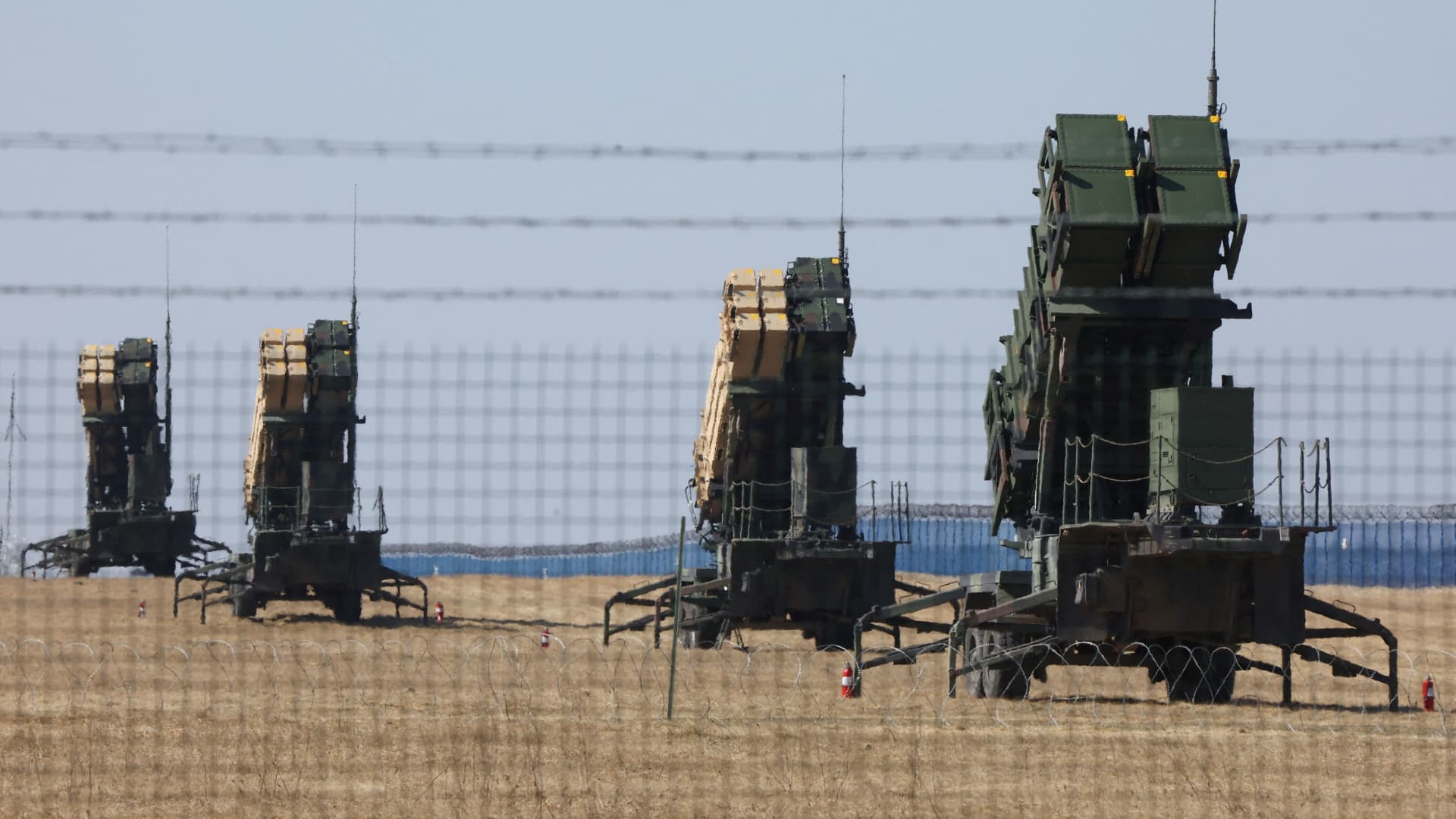
The Pentagon will reposition a Patriot missile system in Slovakia under U.S. command after Slovakian officials agreed to send Ukraine its S-300 air defense system.
Secretary of Defense Lloyd Austin said he expected the long-range missile system, which is made by Raytheon, and U.S. crew will arrive "in coming days." He said U.S. military leaders are talking to Slovakian government "about more permanent air defense solutions," according to a statement released by the Pentagon.
"This deployment of Patriot capabilities to Slovakia aligns perfectly with our previous efforts to bolster NATO's defensive capabilities and to demonstrate our collective security requirements under Article 5 of the NATO treaty," Austin wrote.
President Joe Biden also confirmed in a statement that Ukrainian President Volodymyr Zelenskyy had previously asked for the S-300 missile defense system.
"The entire world has now witnessed the effectiveness of those weapons, as courageous Ukrainian forces have used them to repel the Russian attack on Kyiv, keep the skies of Ukraine contested, and deliver severe blows to the Russian military," Biden wrote.
— Amanda Macias
EU Commission President Ursula von der Leyen visits Bucha
Editor's note: Graphic content. The following article contains a photo of casualties at Bucha.
European Commission chief Ursula von der Leyen said the deaths of civilians in the Ukrainian town of Bucha showed the "cruel face" of Russian President Vladimir Putin's army, pledging to support Kyiv in its defense of the "border of Europe."
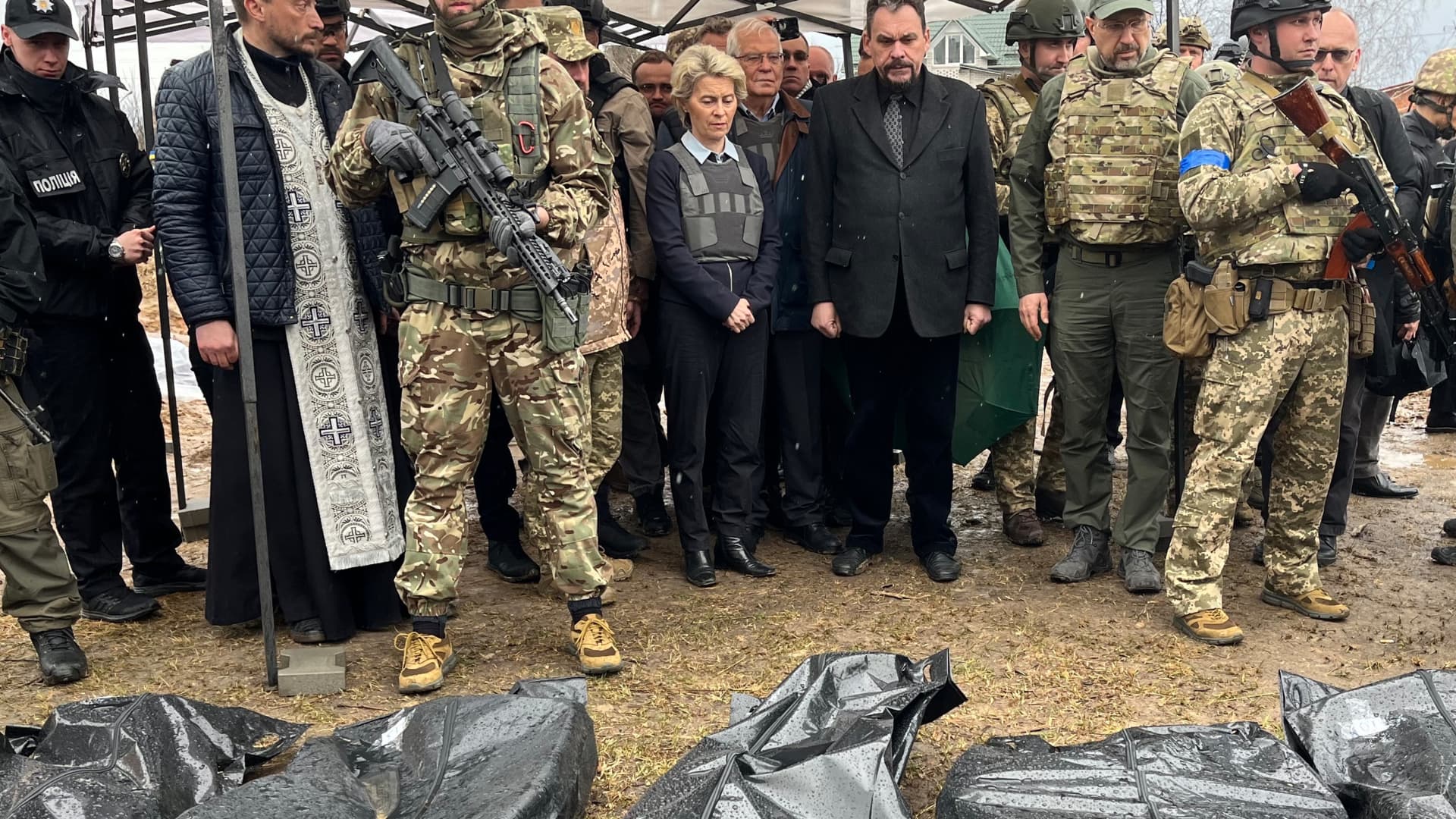
During a visit to Bucha, where forensic investigators started to exhume bodies from a mass grave, von der Leyen looked visibly moved by what she saw in a town where Ukrainian officials say hundreds of civilians were killed by Russian forces.
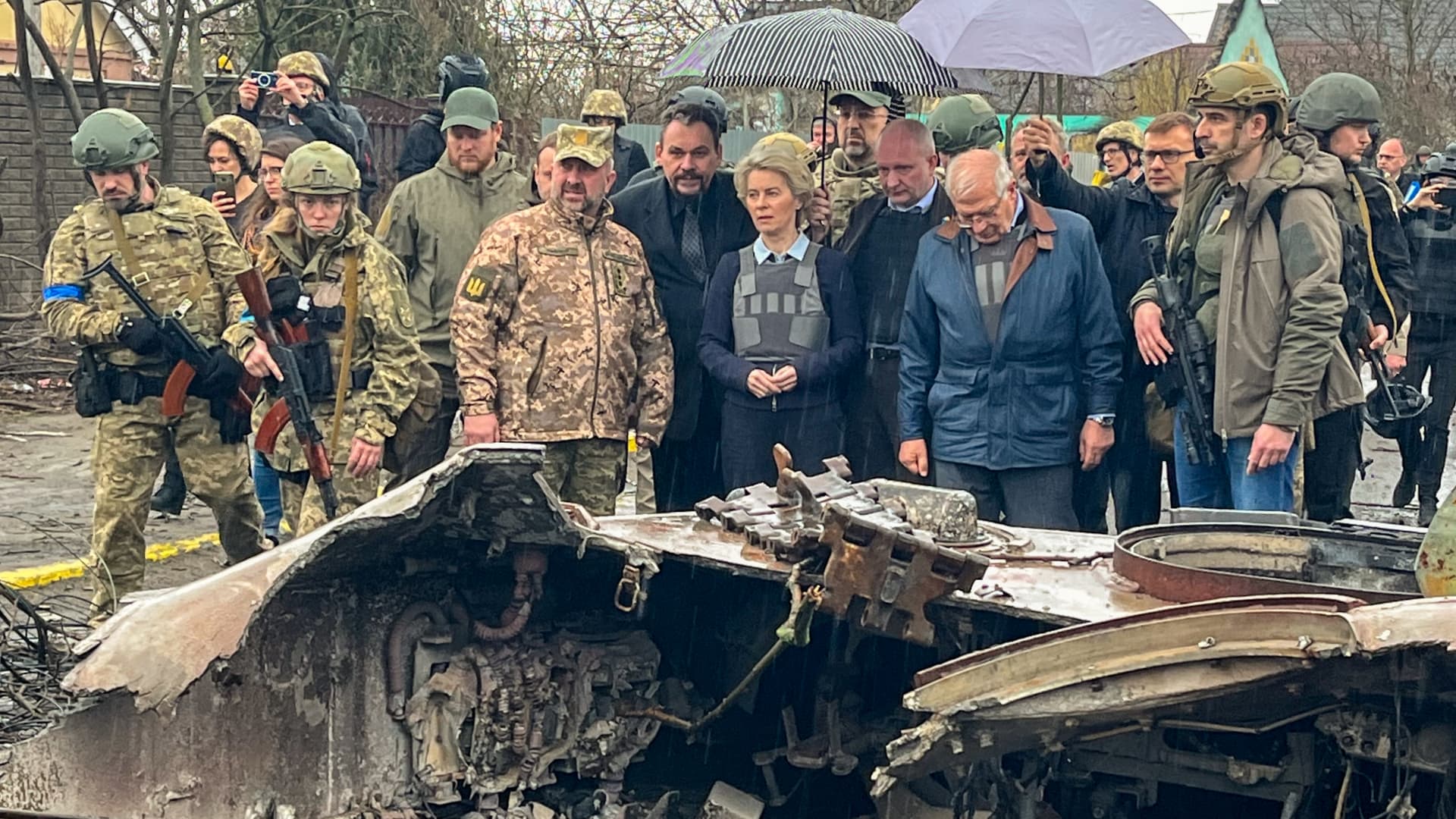
Russia denies targeting civilians in its more than six-week war against Ukraine and has called the allegations that Russian forces executed civilians in Bucha while they occupied the town a "monstrous forgery" aimed at denigrating the Russian army.
Speaking to reporters in Bucha, von der Leyen, wearing a flak jacket, said the EU would do everything to support Ukraine to do "the necessary steps" to secure membership of the bloc — a demand Ukrainian President Volodymyr Zelenskyy has pressed.
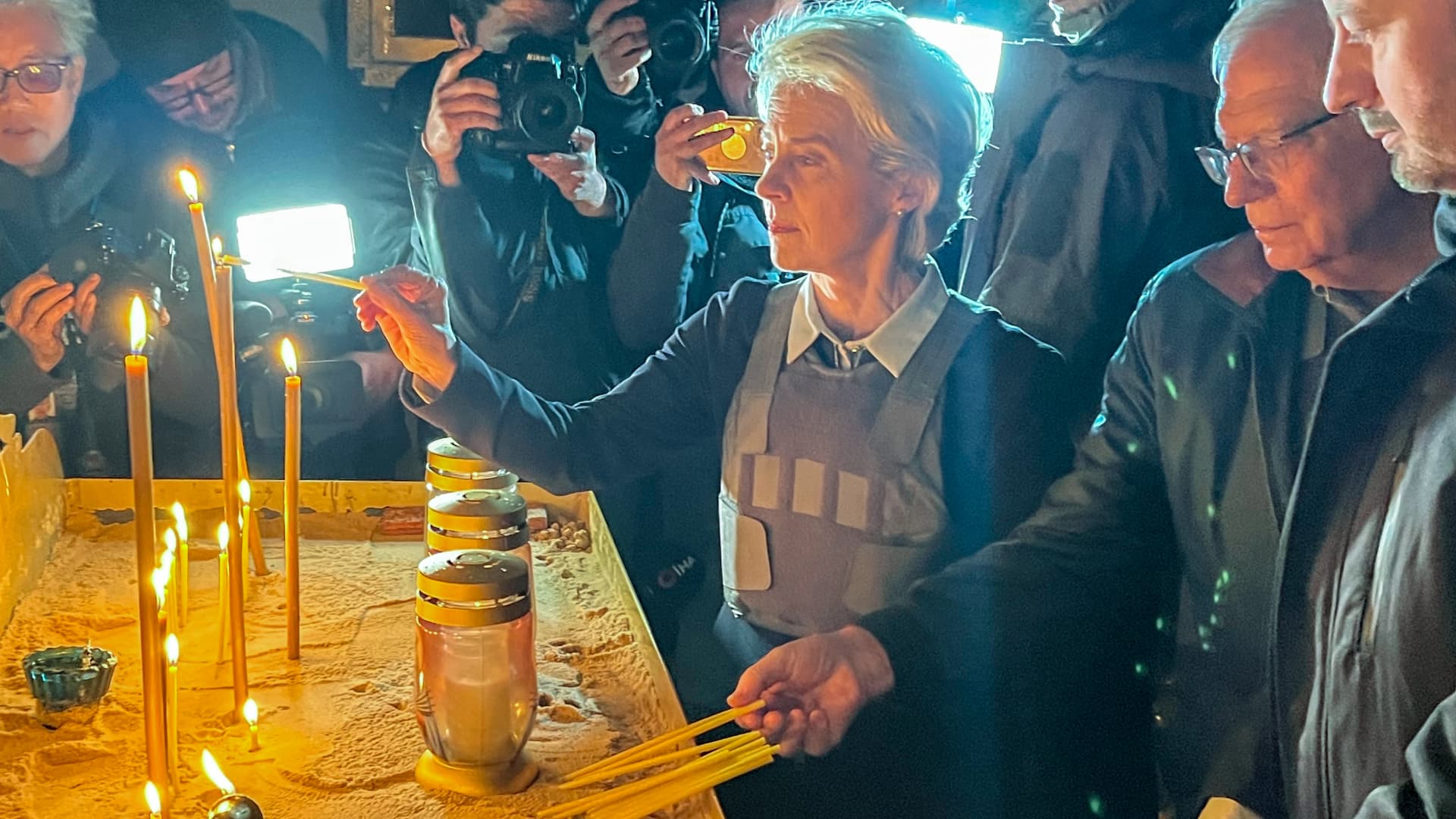
"The unthinkable has happened here. We have seen the cruel face of Putin's army. We have seen the recklessness and the cold heartedness with which they have been occupying the city," von der Leyen told reporters in Bucha.
— Reuters
Putin's approval rating soars since he sent troops into Ukraine, state pollster
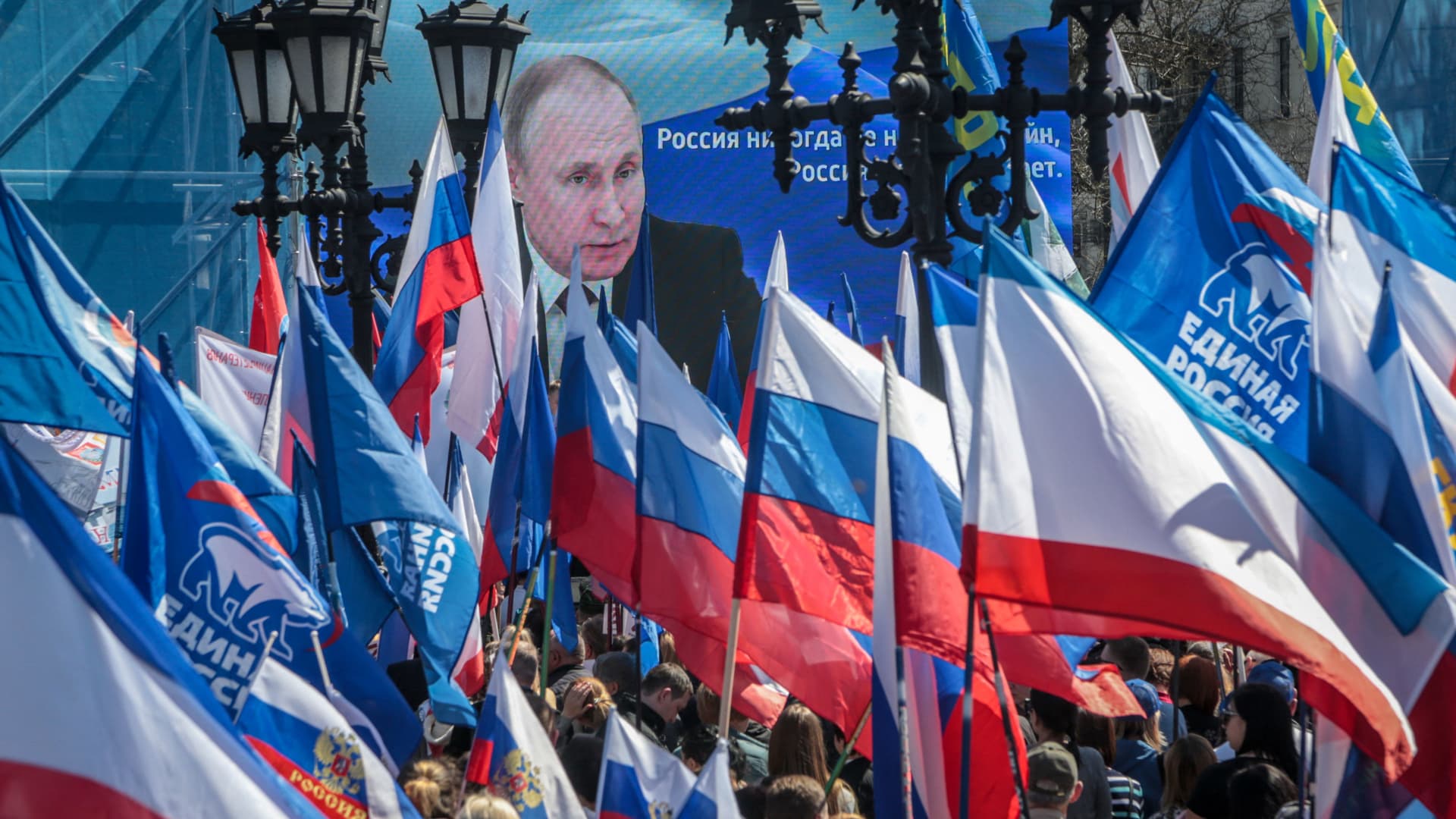
The proportion of Russians who trust President Vladimir Putin has risen to 81.6% from 67.2% before he ordered troops into Ukraine on Feb. 24, according to a survey by the state-run pollster VTsIOM.
The conflict has displaced more than 10 million Ukrainians from their homes, killed or injured thousands, turned cities into rubble and led to sweeping Western sanctions that will push down Russian living standards.
VTsIOM said 78.9% of respondents in its latest survey said they approved of Putin's actions, compared to 64.3% in the last poll before the start of what Russia calls its "special military operation." The proportion who disapproved of his actions fell to 12.9% from 24.4%.
Ukraine and Western leaders have condemned Russia's military campaign as unprovoked aggression. The Kremlin says it had to demilitarise and "denazify" Ukraine to protect Russian-speakers and pre-empt a threat from the Western NATO alliance.
— Reuters
At least 50 people killed in rocket attack at Kramatorsk rail station
Editor's note: Graphic content. The following article contains a photo of casualties and wounded in Kramatorsk
At least 50 people have been killed after a Ukraine railway station was hit by rockets, according to the governor of the Donetsk region. That number includes five children.
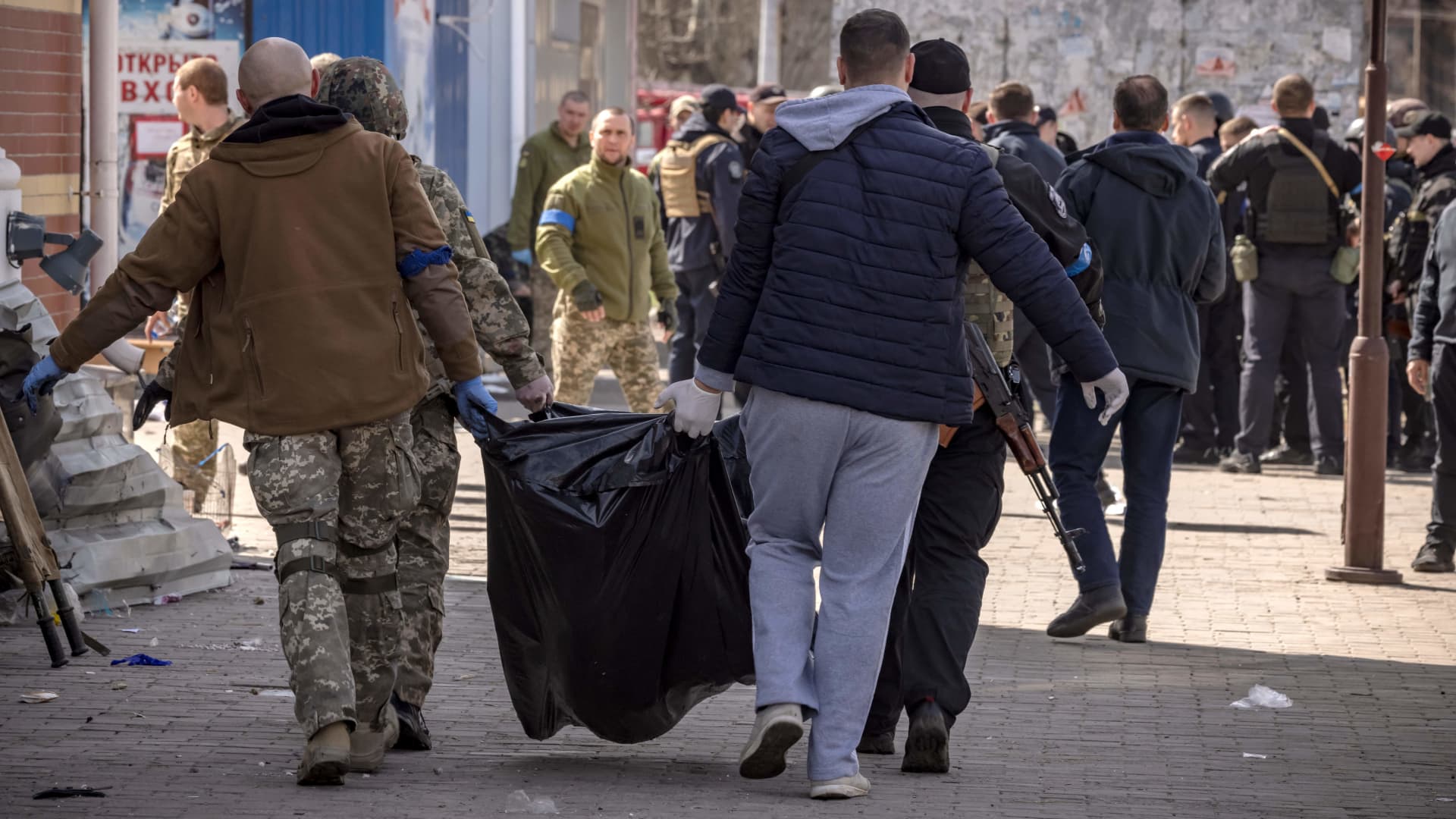
Pavlo Kyrylenko said the number of victims at Kramatorsk train station is "constantly changing" as a result of the attack, with 98 believe reported to have been taken to hospitals.
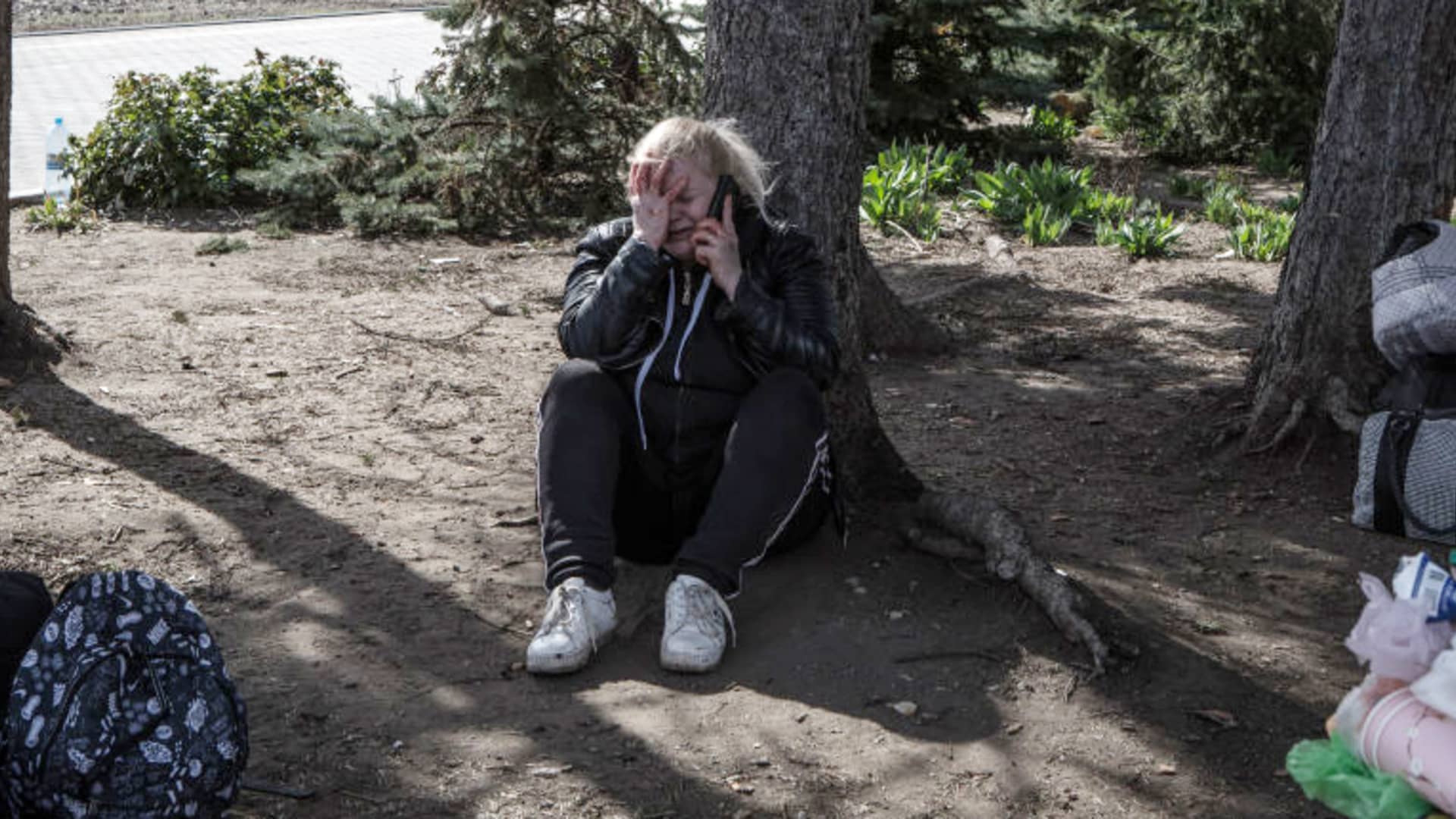
"Of the 98 wounded who were taken to medical facilities, 16 were children, 46 were women and 36 were men. Twelve of them died at the hospital. 38 people died at the station," Kyrylenko said via Telegram, according to a translation.
— Sam Meredith
Death toll from Kramatorsk train station rocket attack rises to 39: Donetsk governor
The death toll from the rocket attack on a railway station in Ukraine's eastern city of Kramatorsk has risen to at least 39, according to the governor of the Donetsk region. The train station was one of many sites in the country's east where thousands of civilians are trying to flee as Russian attacks worsen.
"As of 13:00, 39 people were killed and 87 were injured in the shelling of the Kramatorsk railway station," governor Pavlo Kyrylenko wrote on his official Telegram channel.
The rockets hit an area "from where evacuation trains run in an organized manner, taking residents of Donetsk region to safer regions of Ukraine. The Russians are deliberately trying to disrupt the evacuation of civilians," he said. "For them, people's lives are just a bargaining chip and a tool to achieve their cynical goal."
Moscow has denied any involvement in the rocket strikes.
— Natasha Turak
Almost 4.5 million people have fled Ukraine since invasion began, U.N. says
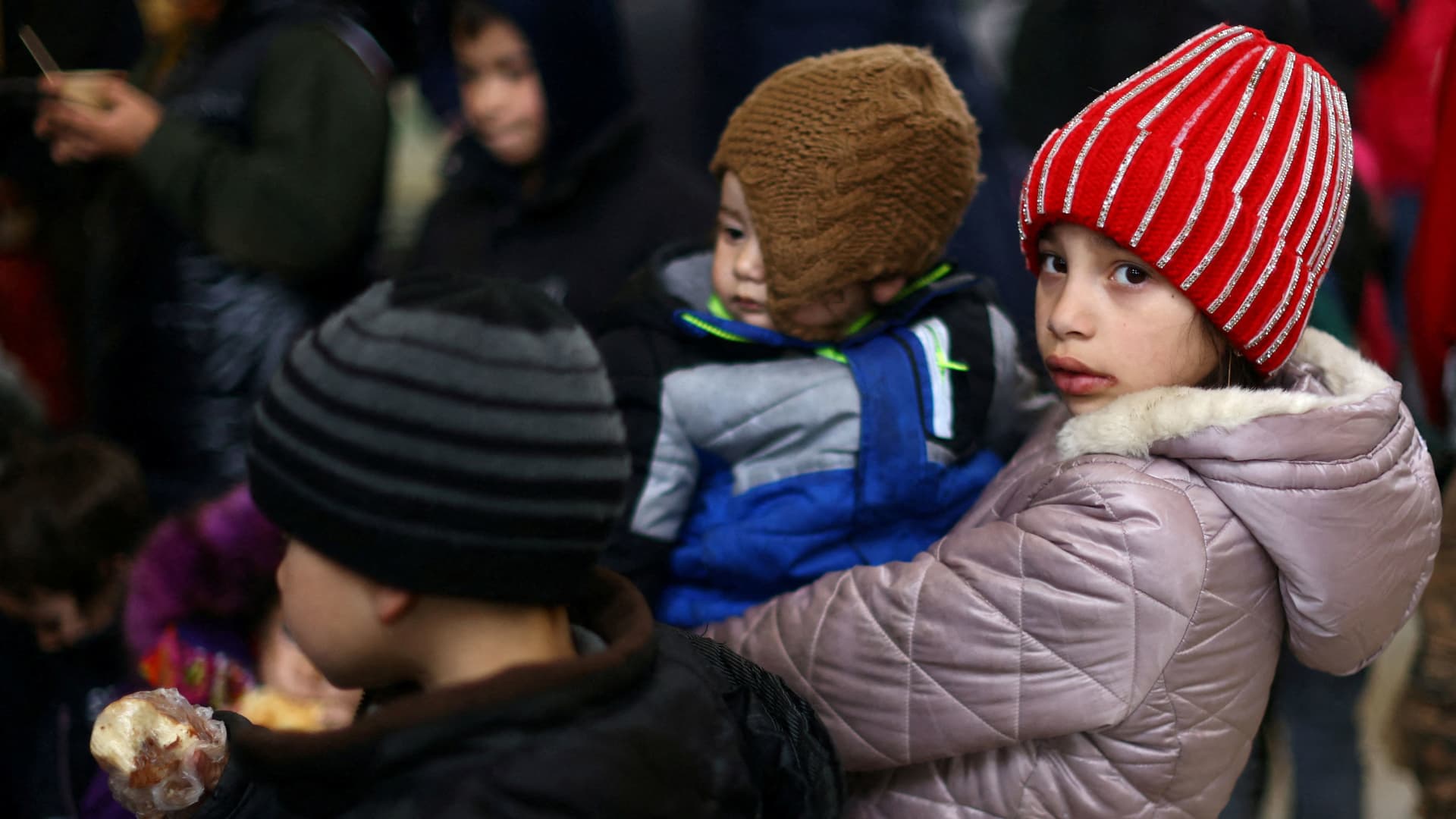
The U.N.'s High Commissioner for Refugees said that 4,382,316 people have fled Ukraine since the Russian invasion began on Feb. 24, an increase of 62,822 since Wednesday. The rise in the number of people fleeing has slowed, but those trying to escape often spend weeks in very poor conditions.
"The war in Ukraine has triggered one of the fastest-growing displacement and humanitarian crises ever," UNHCR spokesman Matt Saltmarsh said.
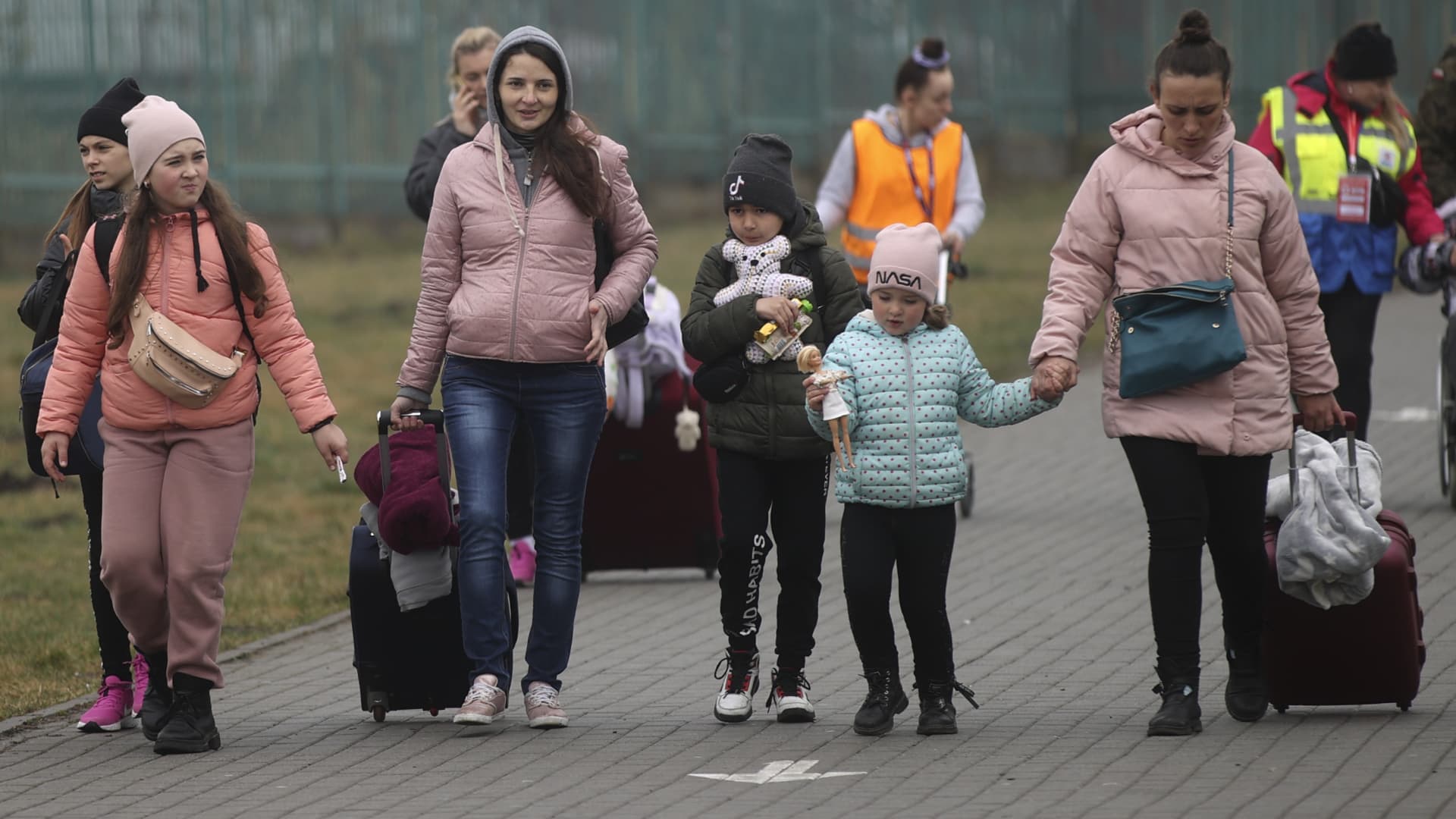
"While the pace of arrivals is slowing, overall flows continue given the ongoing hostilities."
Newly arrived refugees have spent weeks "hunkering down at home or in shelters in dire conditions," he added.
— Natasha Turak
Global food prices reach 'highest levels ever' due in part to Ukraine war, UN says
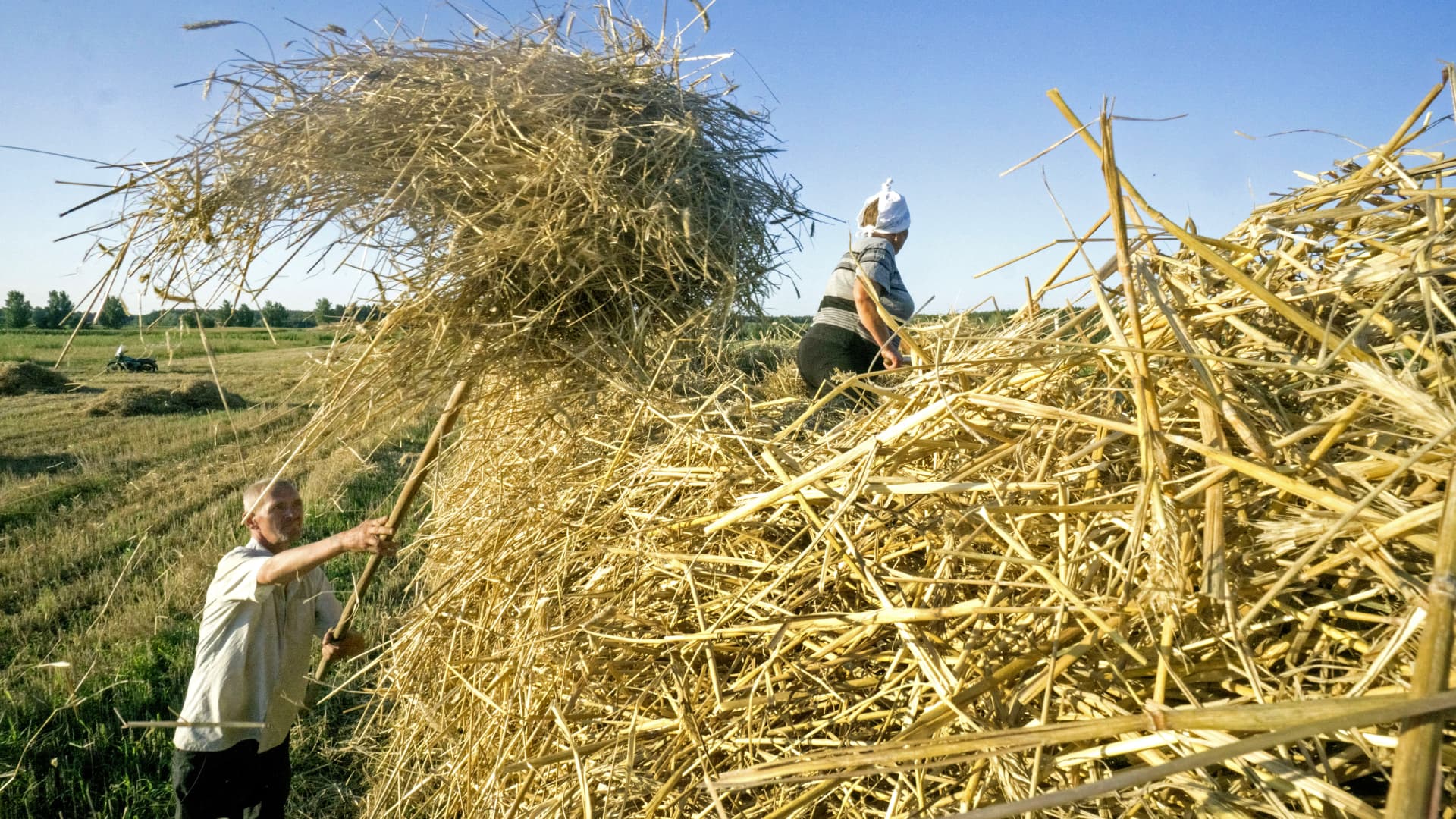
Global food commodity prices reached "their highest levels ever" in March, driven in part by Russia's invasion of Ukraine, according to data provided by the United Nations' Food and Agriculture Organization.
The FAO Food Price Index, which tracks monthly changes in international prices of food commodities, averaged 159.3 points in March, up 12.6% from February, which was then the highest level since its inception in 1990.
The latest index reading was 33.6% higher than the year prior.
"The FAO Cereal Price Index was 17.1% higher in March than in February, driven by large rises in wheat and all coarse grain prices largely as a result of the war in Ukraine," the organization wrote, adding that Ukraine's wheat and maize account for 20% of the world's exports.
The FAO Food Price Index for vegetable oil also rose by 23.2% in March, driven by demand for sunflower seed oil. Ukraine is the world's leading exporter of the product.
— Amanda Macias
More than 30 killed, 100 wounded in Russian rocket attack on Ukraine railway station
More than 30 people were killed and over 100 injured in a rocket attack on a railway station in eastern Ukraine where families and individuals were waiting to evacuate to safer parts of the country, the national railway company said.
Two rockets hit a train station in the city of Kramatorsk, currently an evacuation point for thousands of civilians trying to flee intensifying Russian bombardment.
"According to operational data, more than 30 people were killed and more than 100 were wounded in the rocket attack on Kramatorsk railway station," Ukrainian Railways said via Telegram.
"This is a deliberate blow to the passenger infrastructure of the railway and the residents of Kramatorsk."
Moscow denied involvement in the strike, and denies targeting civilians despite well-documented evidence to the contrary.
— Natasha Turak
NATO chief says Finland is 'welcome' to join the military alliance
Finland is "welcome" to join the U.S.-led NATO military alliance, Secretary-General Jens Stoltenberg said, amid the prospect of the Nordic country applying for membership.
Local media outlets have shown Finnish support for NATO membership hitting a record high following Russia's unprovoked invasion of Ukraine.
"The message from NATO and from me is that it is for Finland to decide," NATO's Stoltenberg told CNBC's Hadley Gamble.
"We will respect the decision regardless of what the conclusion will be, but if Finland decides to apply for membership, I am confident that NATO allies will warmly welcome them — and we can quite quickly make the decision to have them as a member of the allies."
— Sam Meredith
Putin might turn to weapons of mass destruction if Russia fails to win in eastern Ukraine
Russian President Vladimir Putin might turn to weapons of mass destruction, like chemical or tactical nuclear weapons, if he fails to gain a "conventional forces victory" in eastern Ukraine, said Niall Ferguson, a senior fellow at Stanford University's Hoover Institution.
If Russian forces are too weary to accomplish a decisive victory over the next few weeks in the Donbas, Putin might find himself in an "extremely difficult" situation without an obvious off-ramp, Ferguson told CNBC's "Squawk Box Asia" on Thursday.
The Donbas in eastern Ukraine is the site of two breakaway regions where Ukrainian forces and Moscow-backed separatists have fought since Russia illegally annexed Crimea in 2014.
With Russia and the United States — the two countries with the largest nuclear arsenals in the world — on the brink of conflict, Ferguson said this is a "much more dangerous" situation than most people appreciate.
Russia has said it is at war with the West because of the economic sanctions it has imposed on the country.
"That's why although I think we're not on the brink of World War III, we can't rule that scenario out completely," Ferguson said.
— Chelsea Ong
Russian forces in northern Ukraine have 'fully withdrawn' but will be redeployed, UK ministry says
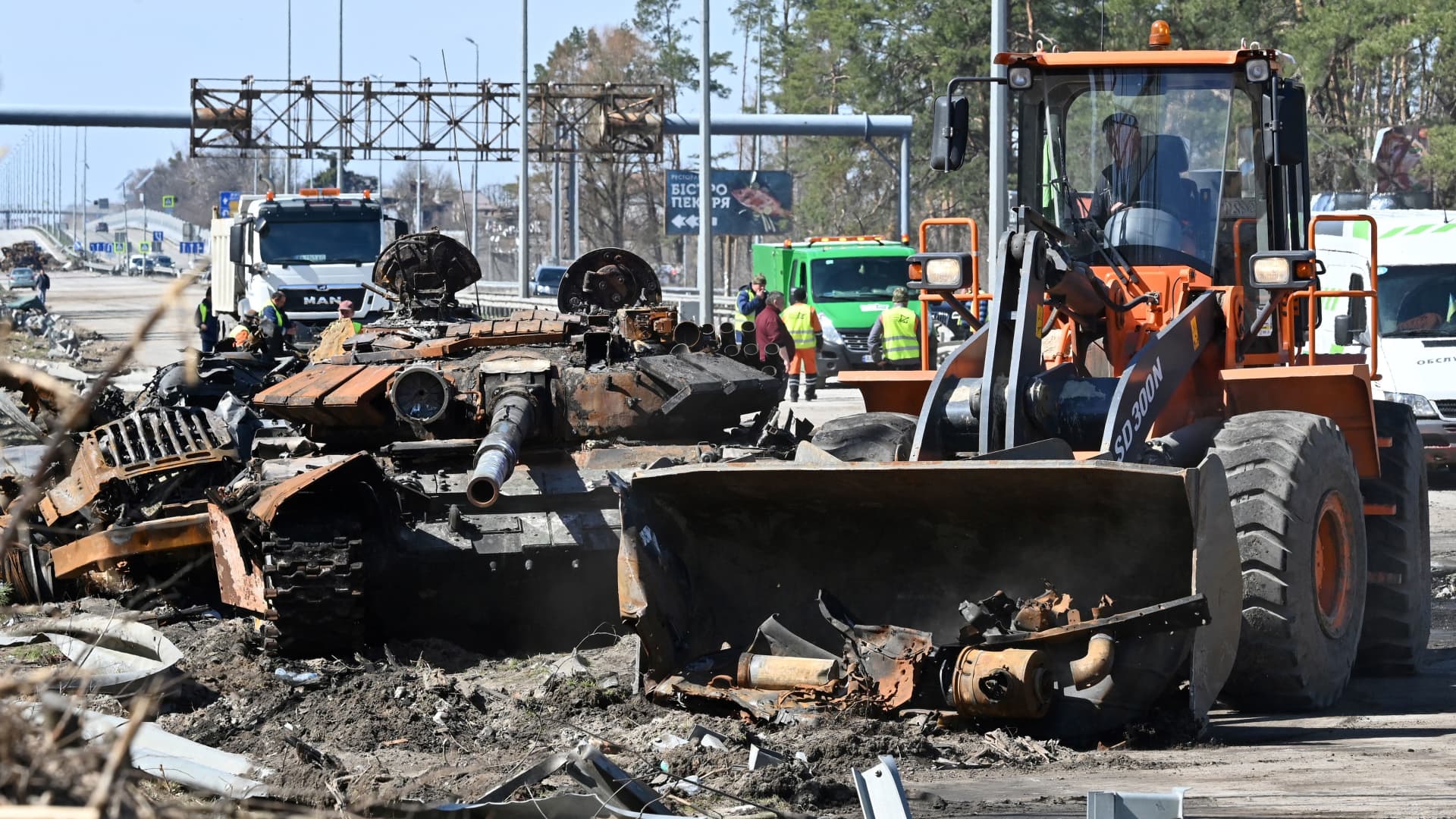
Russian troops that had invaded the northern part of Ukraine have "fully withdrawn" to Belarus and Russia, the U.K. Ministry of Defence said on Friday.
In an intelligence update, the ministry said at least some of those units will be transferred to the eastern part of Ukraine to fight there. Moscow is widely expected to shift the focus of its offensive to the Donbas region, where Russia has engaged in military adventurism for years.
However, the redeployment of those much-depleted Russian units — which were defeated by determined Ukrainian resistance around Kyiv and elsewhere — is not expected to happen easily or quickly.
"Many of these forces will require significant replenishment before being ready to deploy further east, with any mass redeployment from the north likely to take at least a week minimum," the British ministry said.
Meanwhile, Russia continues to shell cities in the east and south of Ukraine, the ministry said.
Russia denies that it uses artillery barrages to attack Ukrainian cities, despite incontrovertible evidence to the contrary.
— Ted Kemp
Kremlin spokesman admits 'significant' Russian troop losses in Ukraine
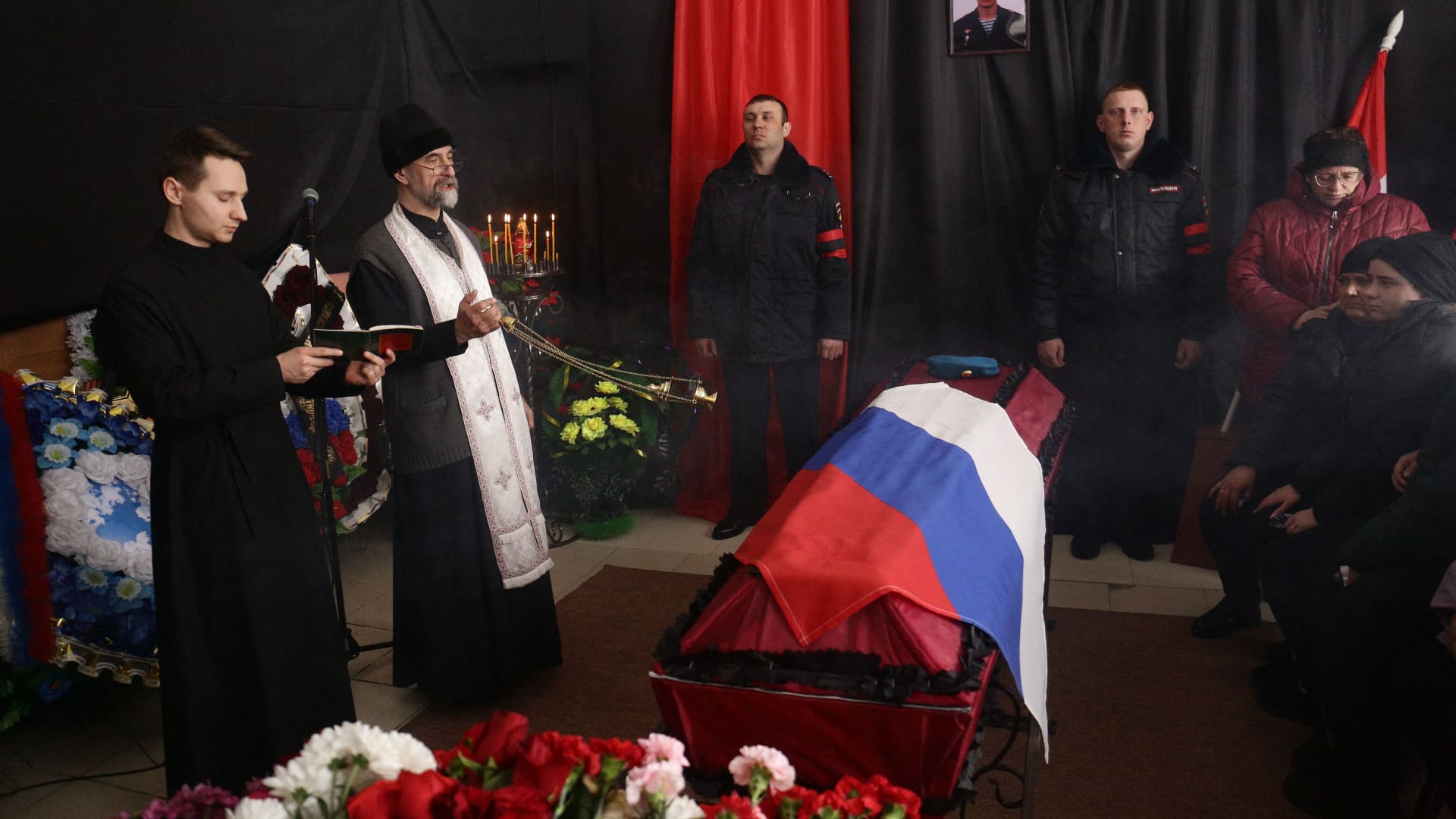
Kremlin spokesman Dmitry Peskov has admitted that Russia has suffered "significant" casualties in its invasion of Ukraine.
"We have significant losses of troops, and it's a huge tragedy for us," Peskov told Sky News Thursday night.
Ukrainian forces have surprised leaders and military experts the world over in their ability to push back on Russian military advances six weeks into the war, though both sides have suffered high casualty numbers.
NATO estimates that Russia's death toll could be as high as 15,000 troops, while Moscow last announced its casualty figures on March 25 at 1,351 deaths.
— Natasha Turak
Ukraine tells NATO that Donbas battle could be like World War II
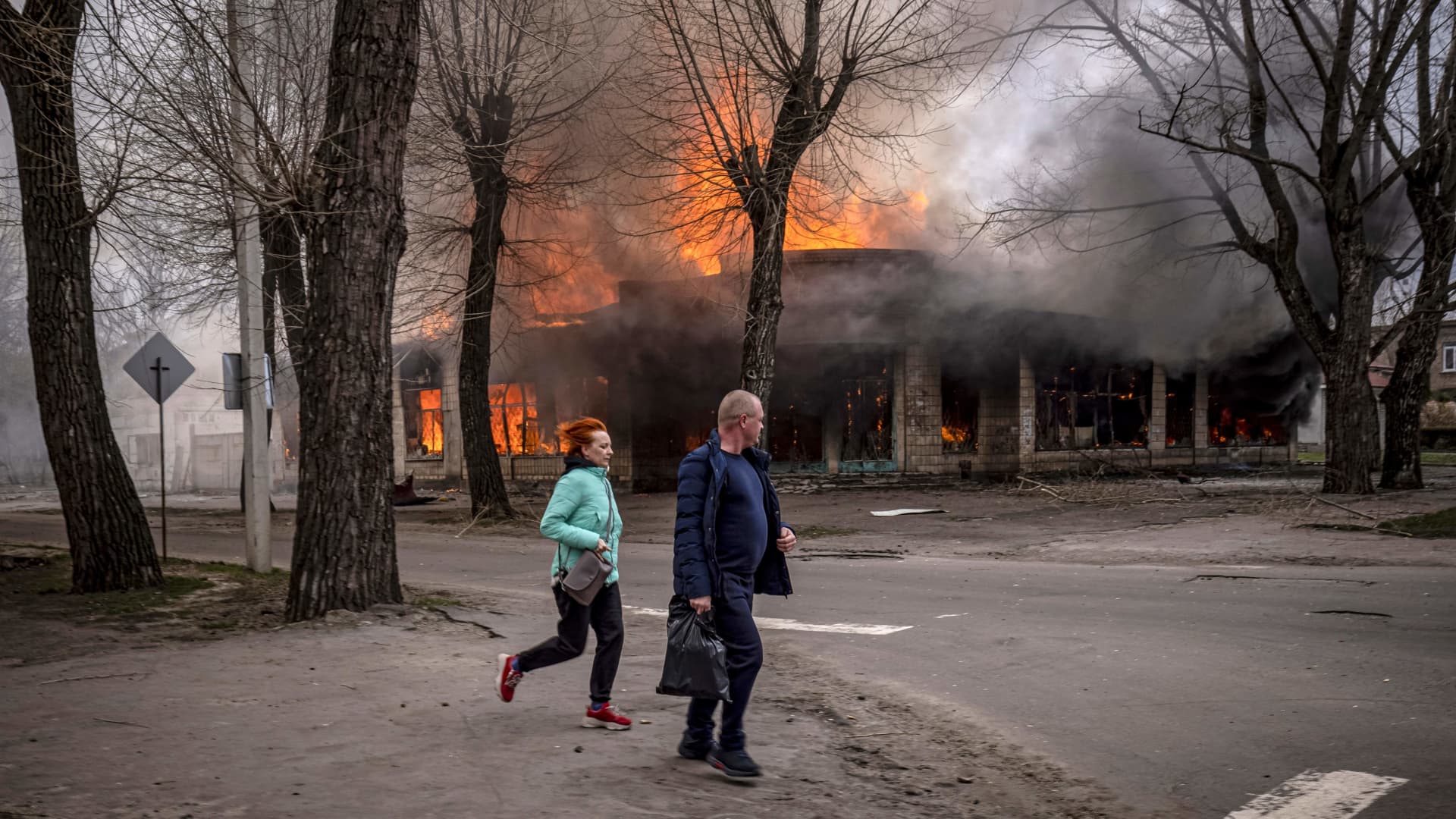
The fighting to come in Ukraine's eastern Donbas region will be reminiscent of battles during World War II, Ukrainian Foreign Minister Dmytro Kuleba has told NATO.
"The battle for Donbas will remind you of the Second World War, with large operations, maneuvers, involvement of thousands of tanks, armored vehicles, planes, artillery — this will not be a local operation based on what we see in Russia's preparations to it," Kuleba said.
"Either you help us now — and I'm speaking about days, not weeks — or, your help will come too late. And many people will die, many civilians will lose their homes, many villages will be destroyed, exactly because this help came to late."
— Natasha Turak
The focus right now is to get Russia to leave Ukraine, says think tank
The current focus for NATO and its allies is to get Russia to end its war, says Jonathan Katz, director of democracy initiatives and a senior fellow with The German Marshall Fund of the United States.
"The more that Russia is isolated from the international system, the less damage they can do," Katz said.
While countries cut economic ties with Russia, "more important right now is to get Russia to stop, to end its violence, to leave Ukraine," he told CNBC's "Street Signs Asia" on Friday.
On Thursday, the United Nations voted to remove Russia from its seat on the Human Rights Council, following reports Russian troops raped, tortured and killed Ukrainian civilians.
— Charmaine Jacob
EIU warns Asia-Pacific remains vulnerable to fluctuations in commodity prices, despite less direct exposure to the war
Asia-Pacific countries may be less exposed to the war in Ukraine compared with other regions, but they could still see less direct hits in areas ranging from commodities to tourism and weapons, according to a new report from the Economic Intelligence Unit.
Russia and Ukraine account for a significant proportion of global supply of some food commodities, such as wheat and fertilizer. Any jump in prices will be a concern for Asia, given the region's high levels of dependence on energy and agricultural commodity imports, warned the EIU.
Russia is also the world's second-largest arms supplier and is a major source of arms for China, India and Vietnam, the research firm pointed out.
The report also listed which countries in Asia-Pacific would be most and least affected.
— Weizhen Tan
Biden has authorized more than $1.7 billion in security aid to Ukraine since war began
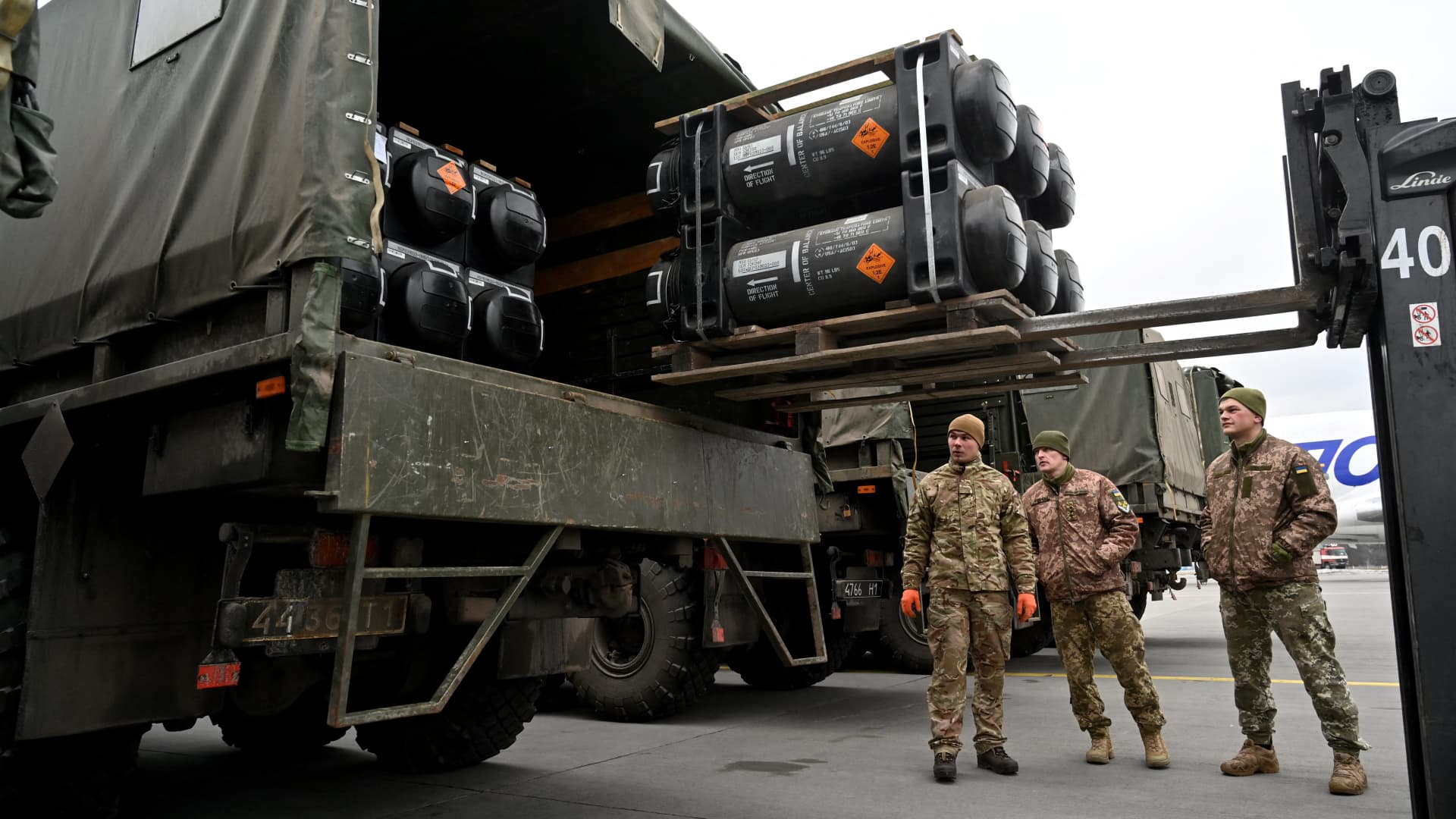
The Biden administration has approved more than $1.7 billion in security assistance to Ukraine since Russia's invasion in late February, according to the White House. The U.S. has provided a total of $2.4 billion to Ukraine since the beginning of Biden's presidency.
The Pentagon also confirmed that all of the anti-armor and anti-air systems from the two weapons packages announced in March have been delivered to Ukraine. The Defense Department added that the U.S. is working to "identify additional weapons systems to help the Ukrainian military."
Ukrainian President Volodomyr Zelenskyy has requested "longer-range anti-aircraft systems," the Pentagon said.
More than 30 nations have sent Ukraine security assistance. Here is the firepower the U.S. has committed thus far, according to the Defense Department:
— Amanda Macias
Pro-Russian forces fight in Mariupol
Pro-Russian forces search houses and inspect streets in the southern port city of Mariupol.
